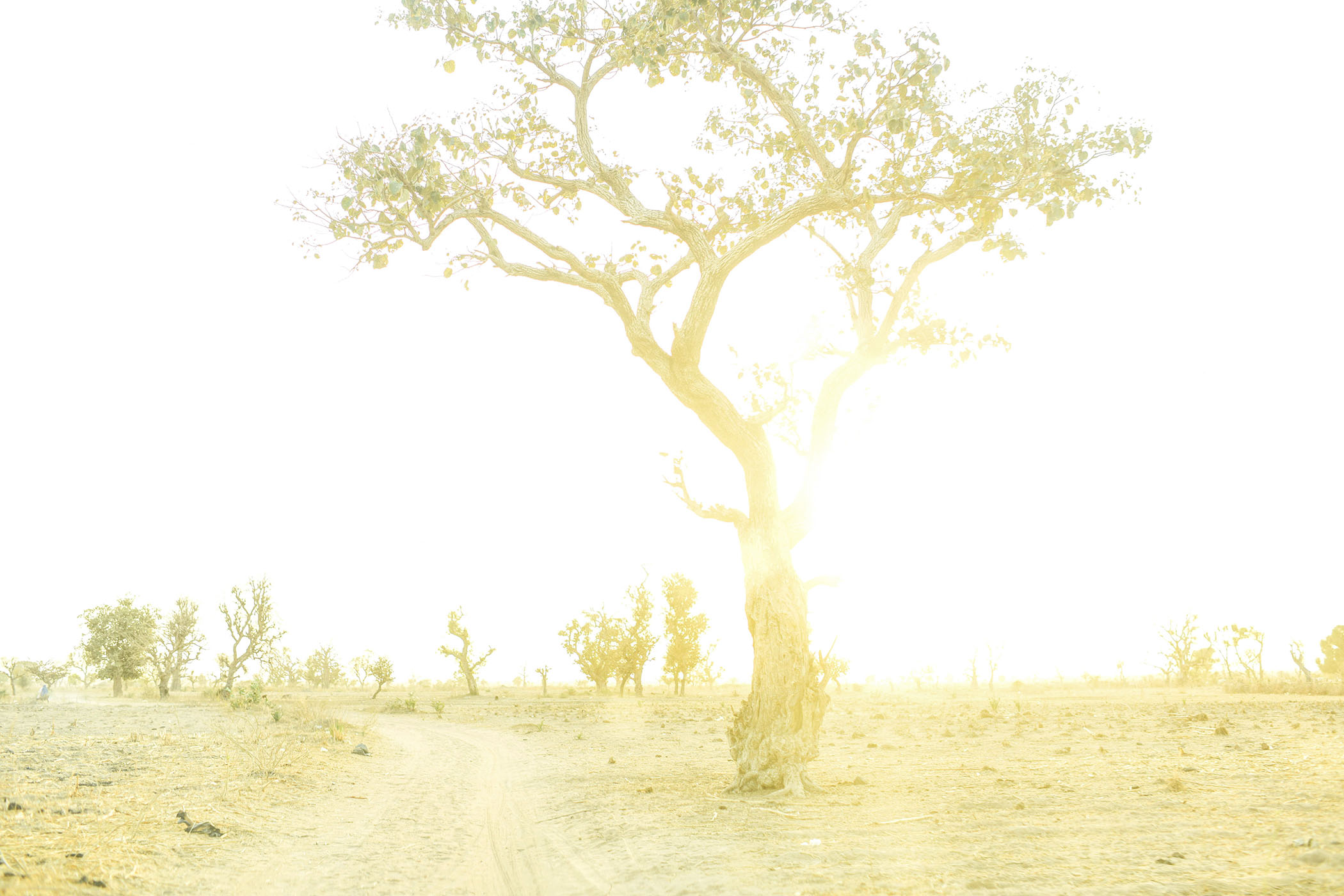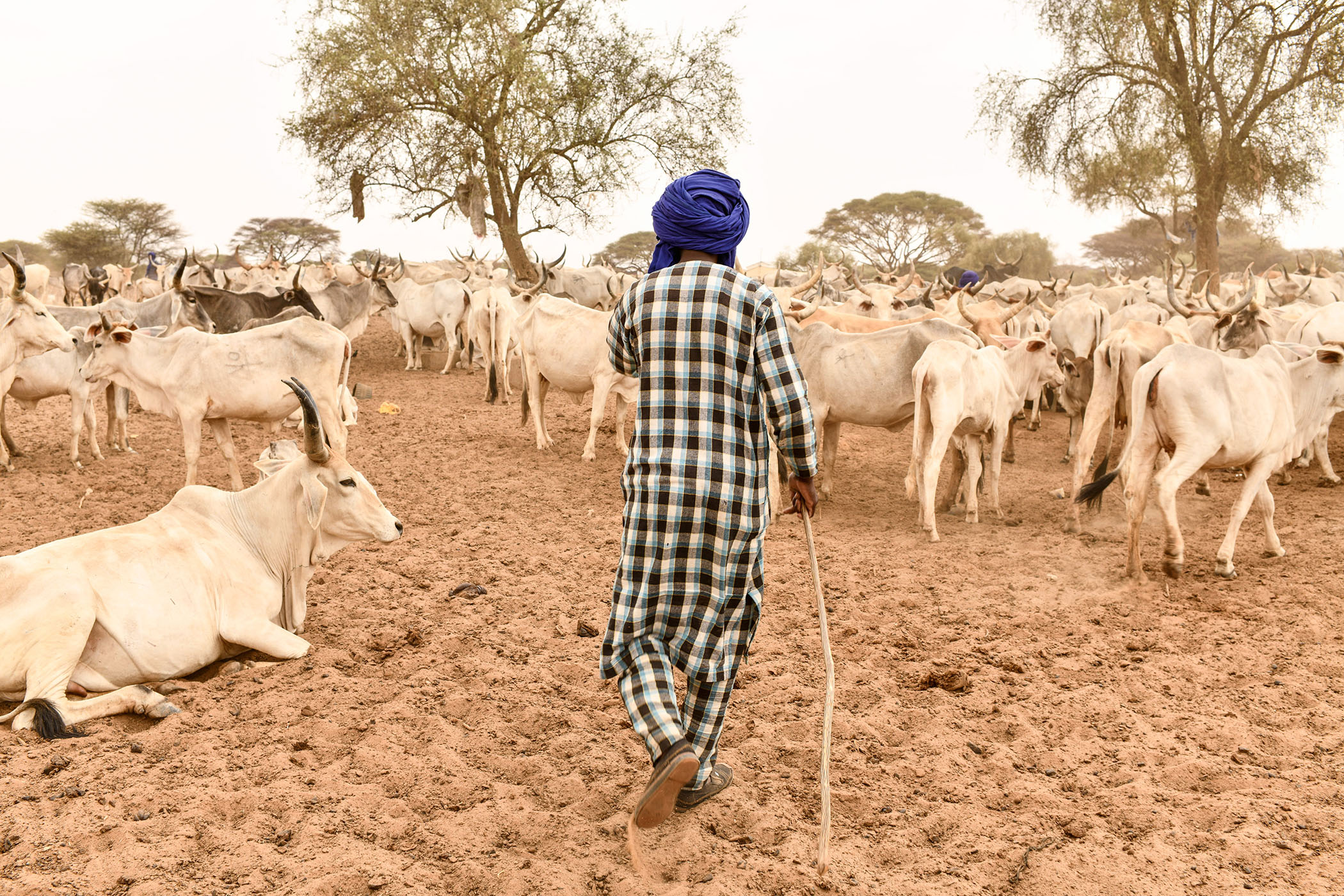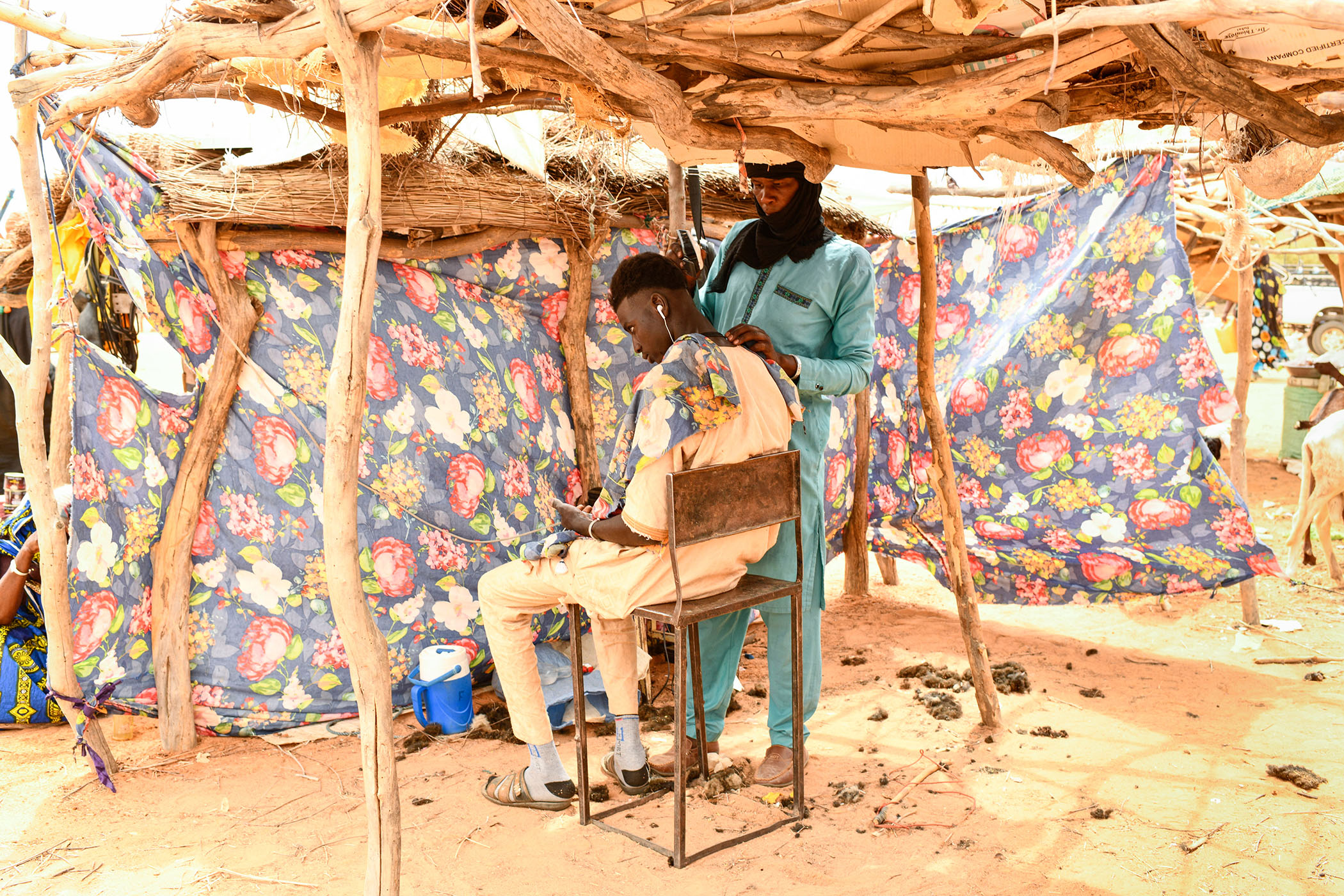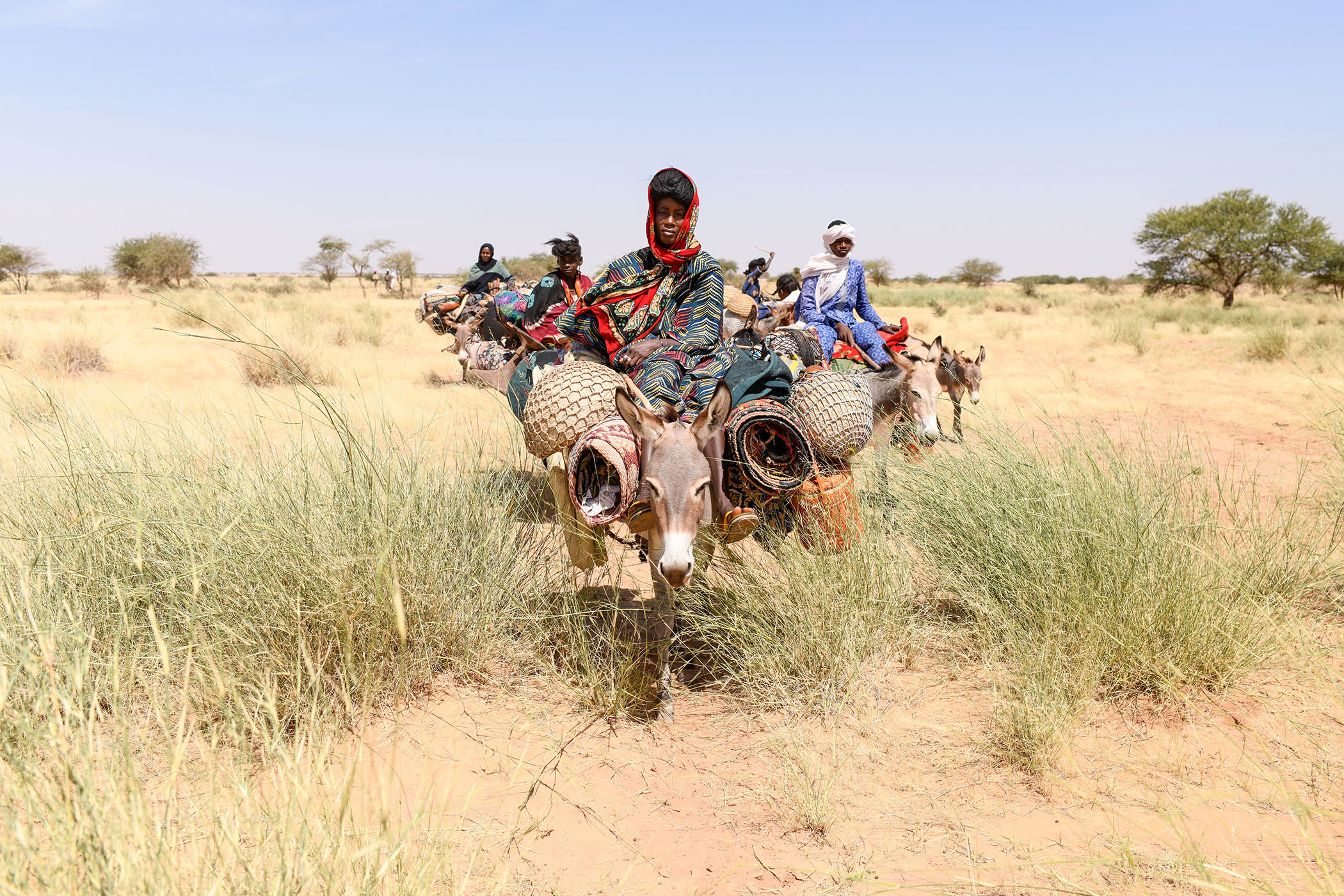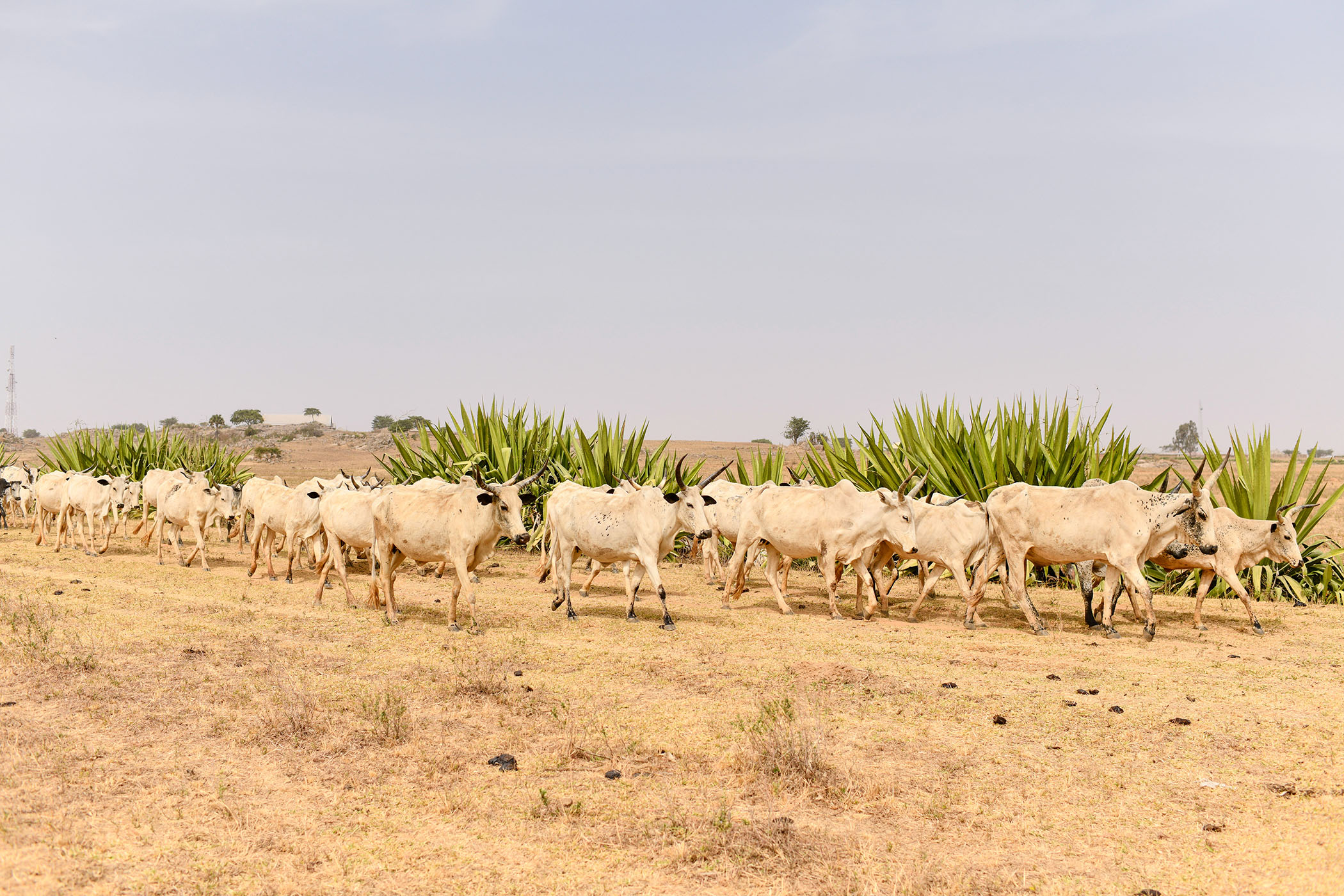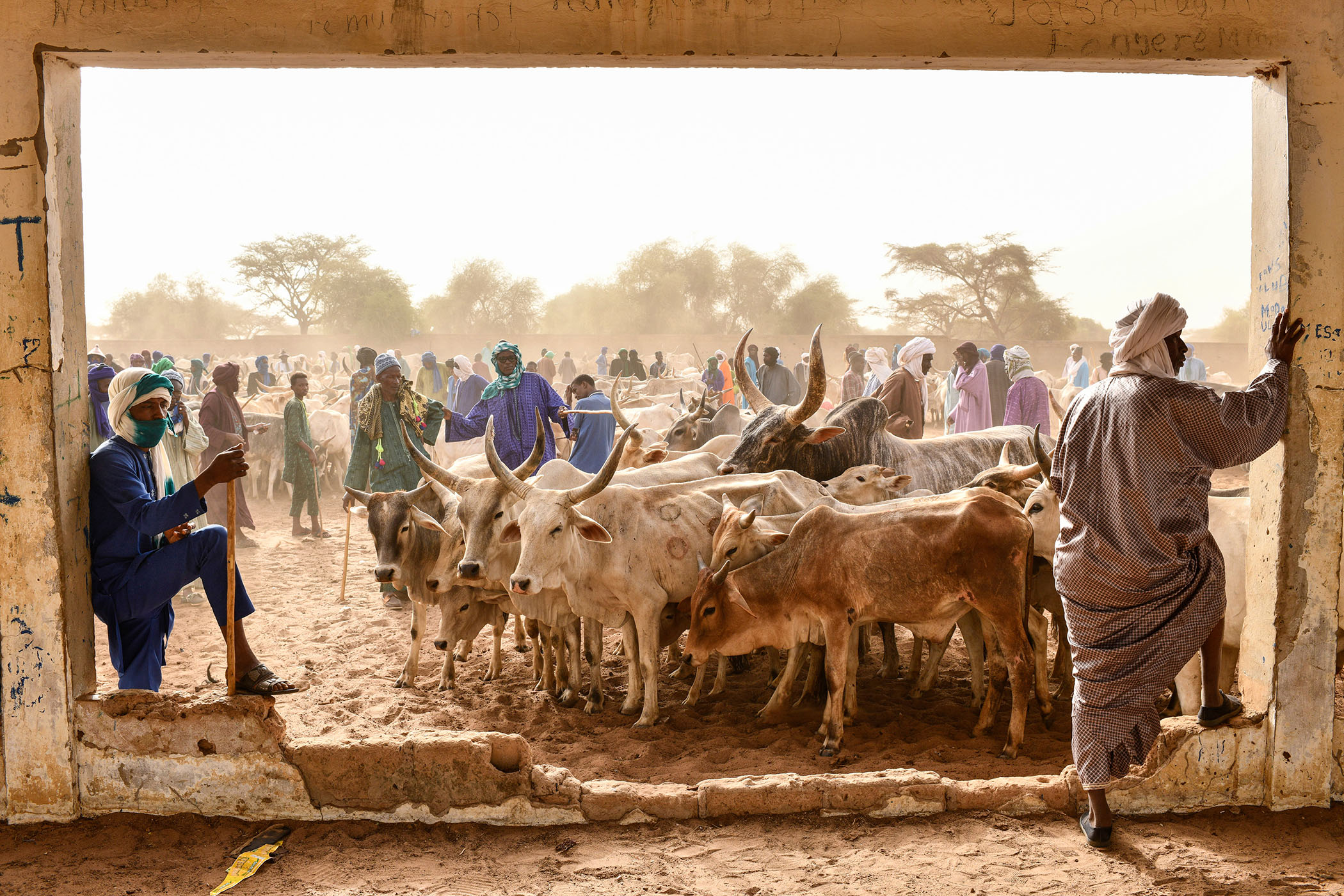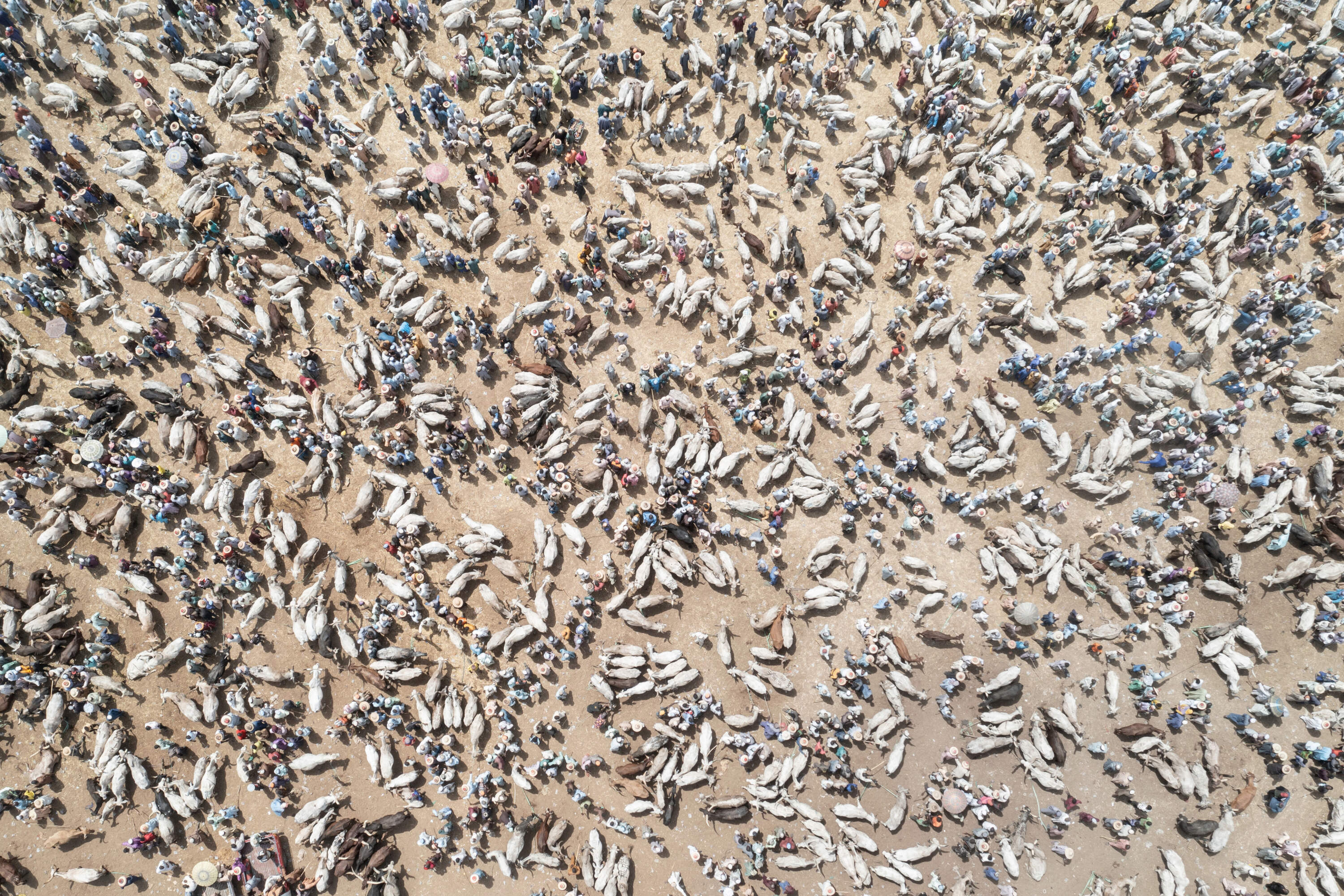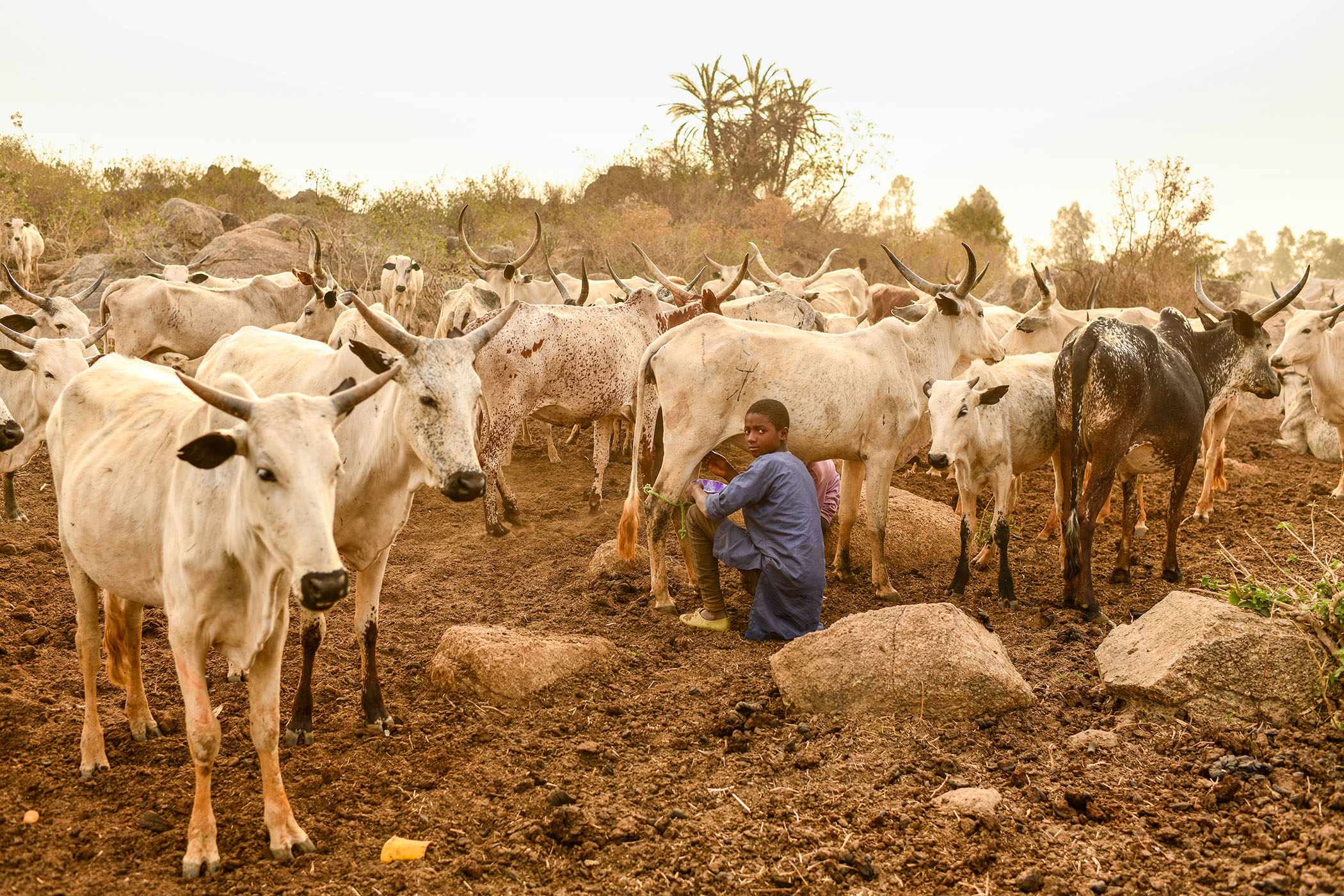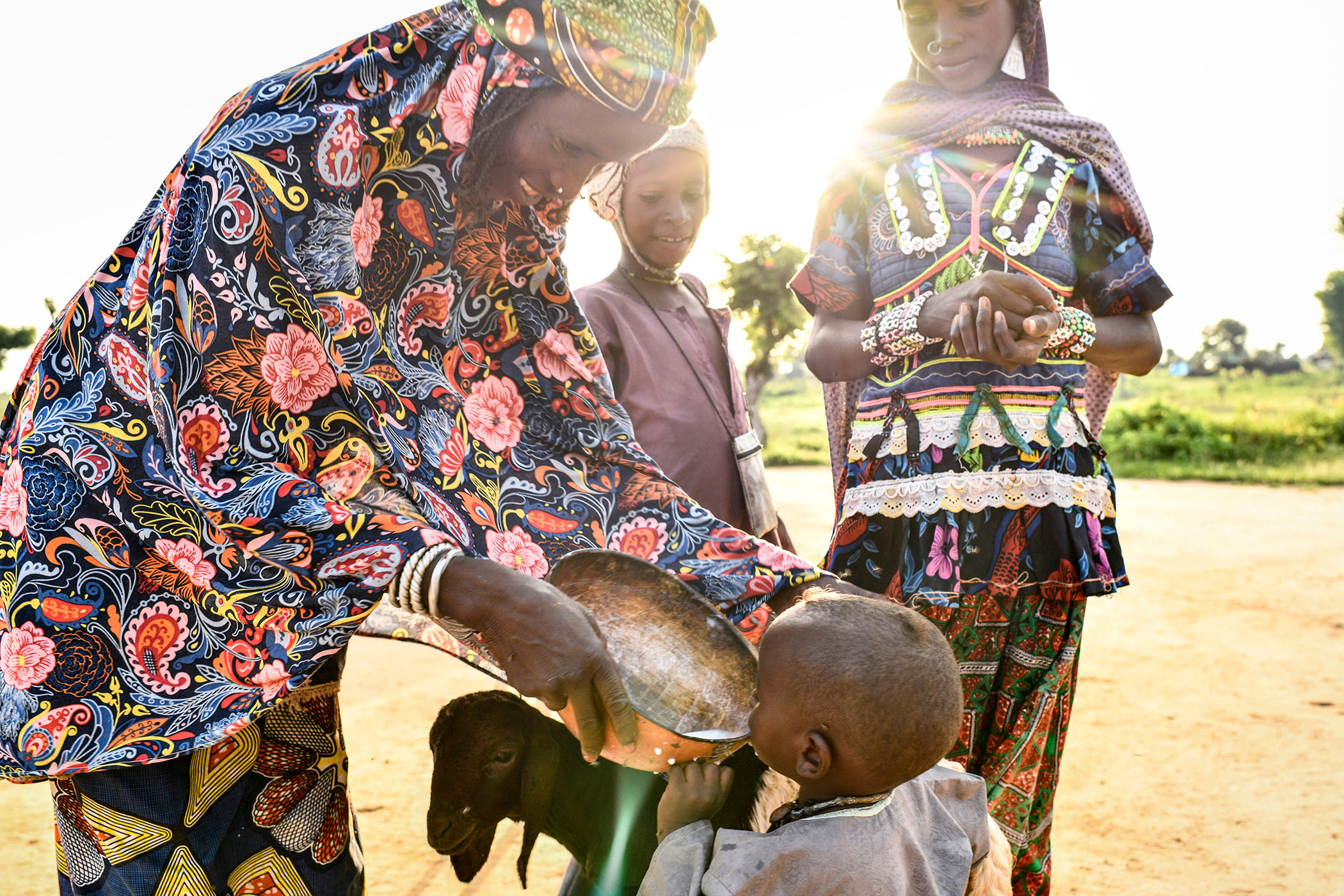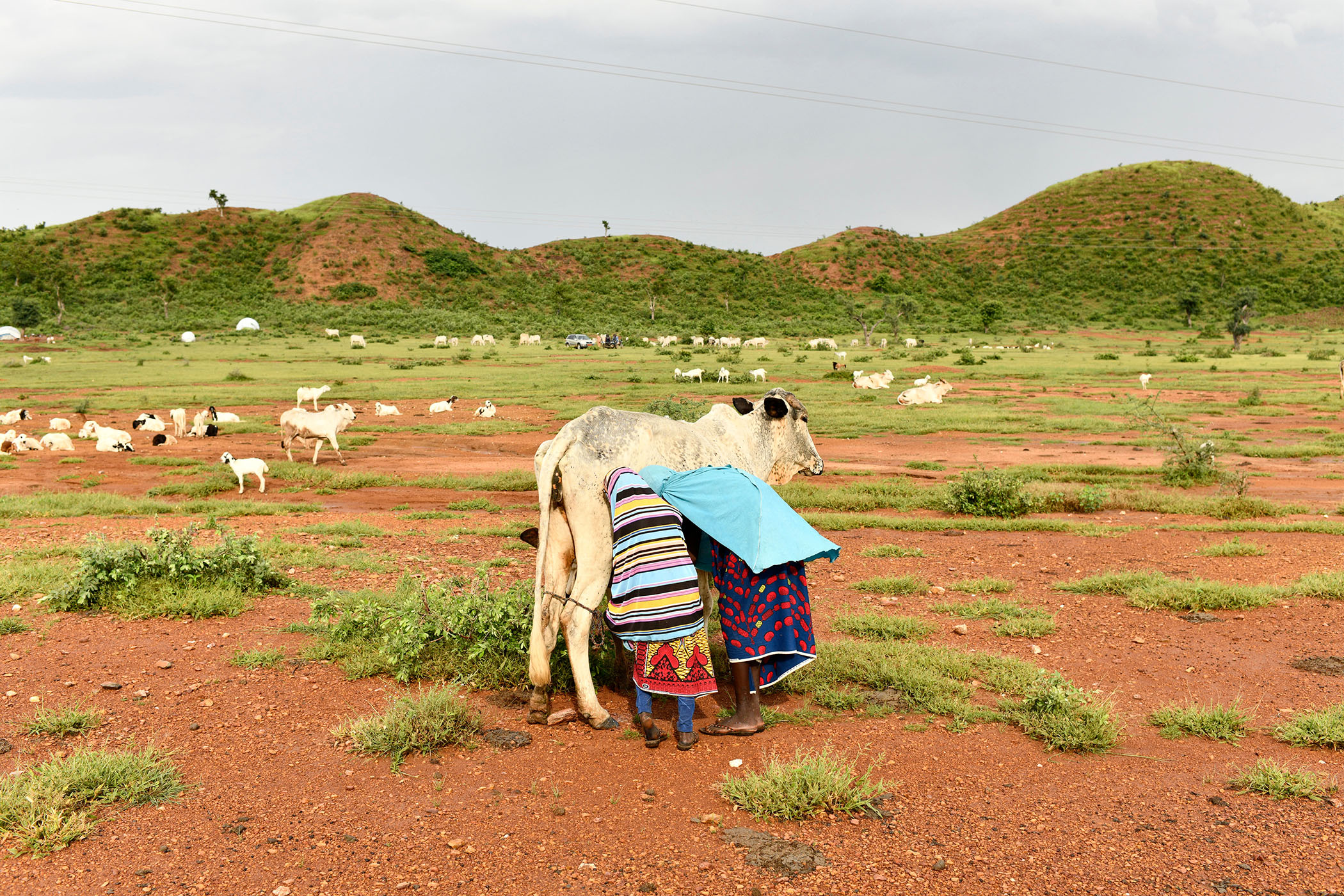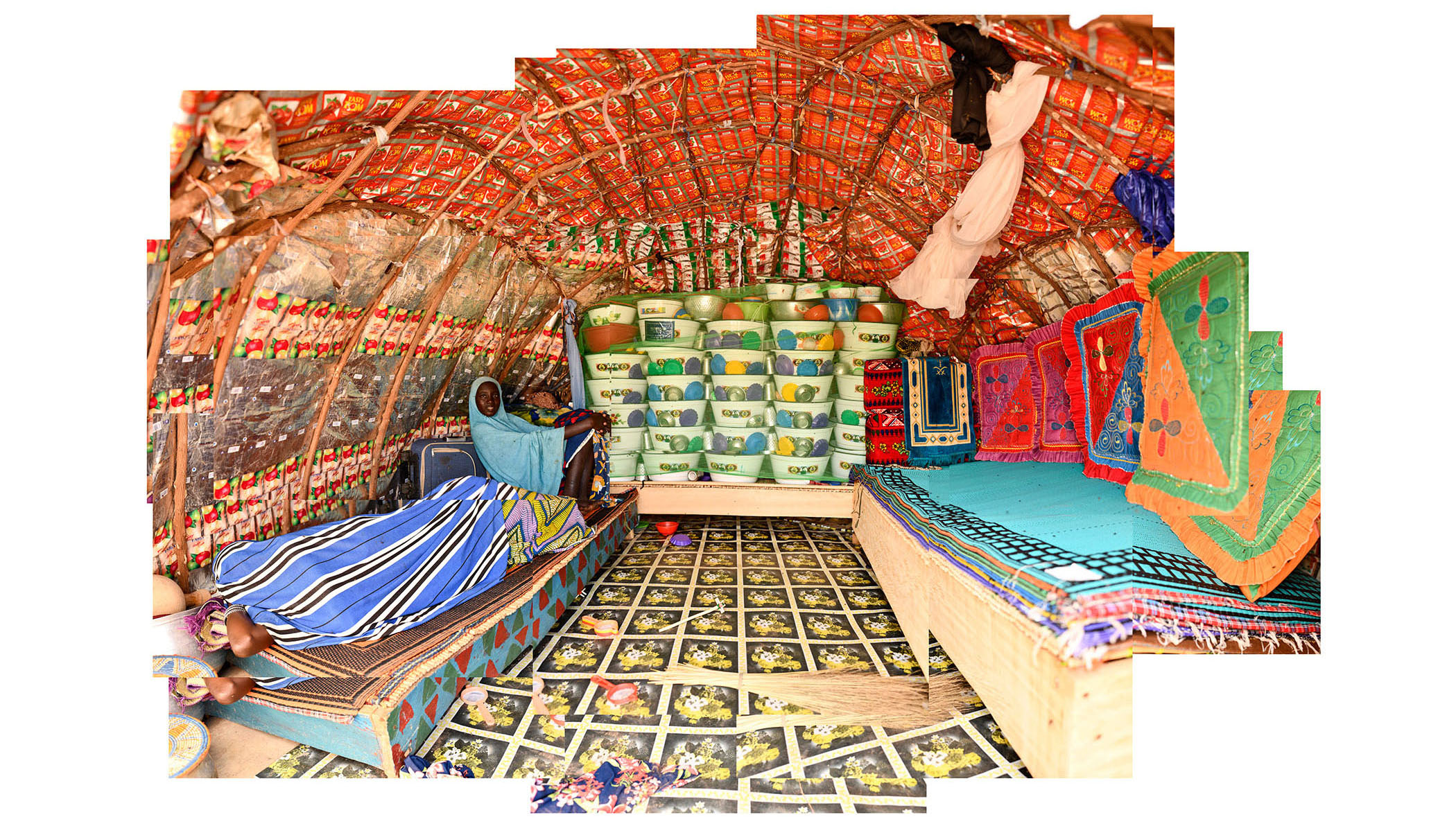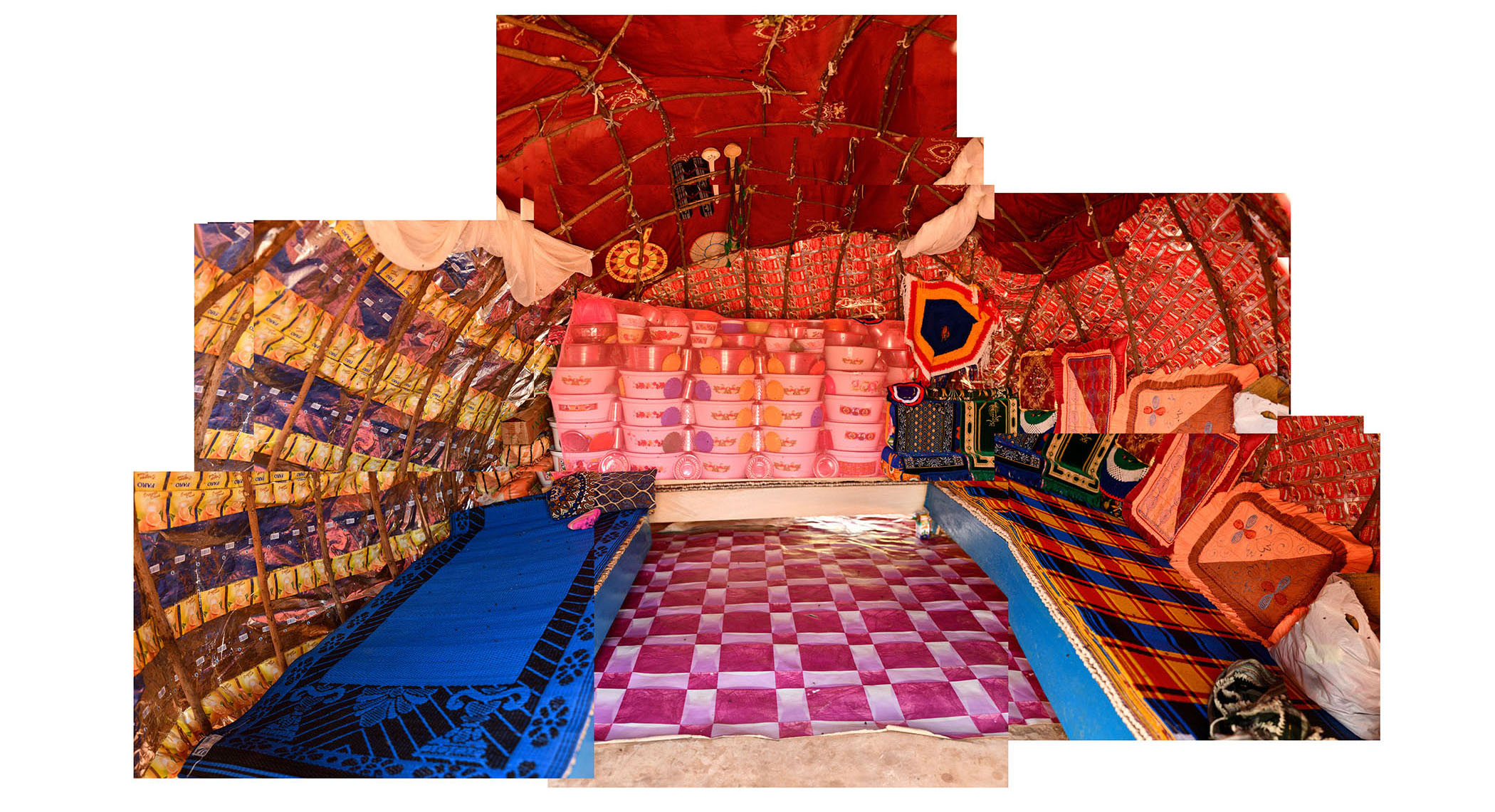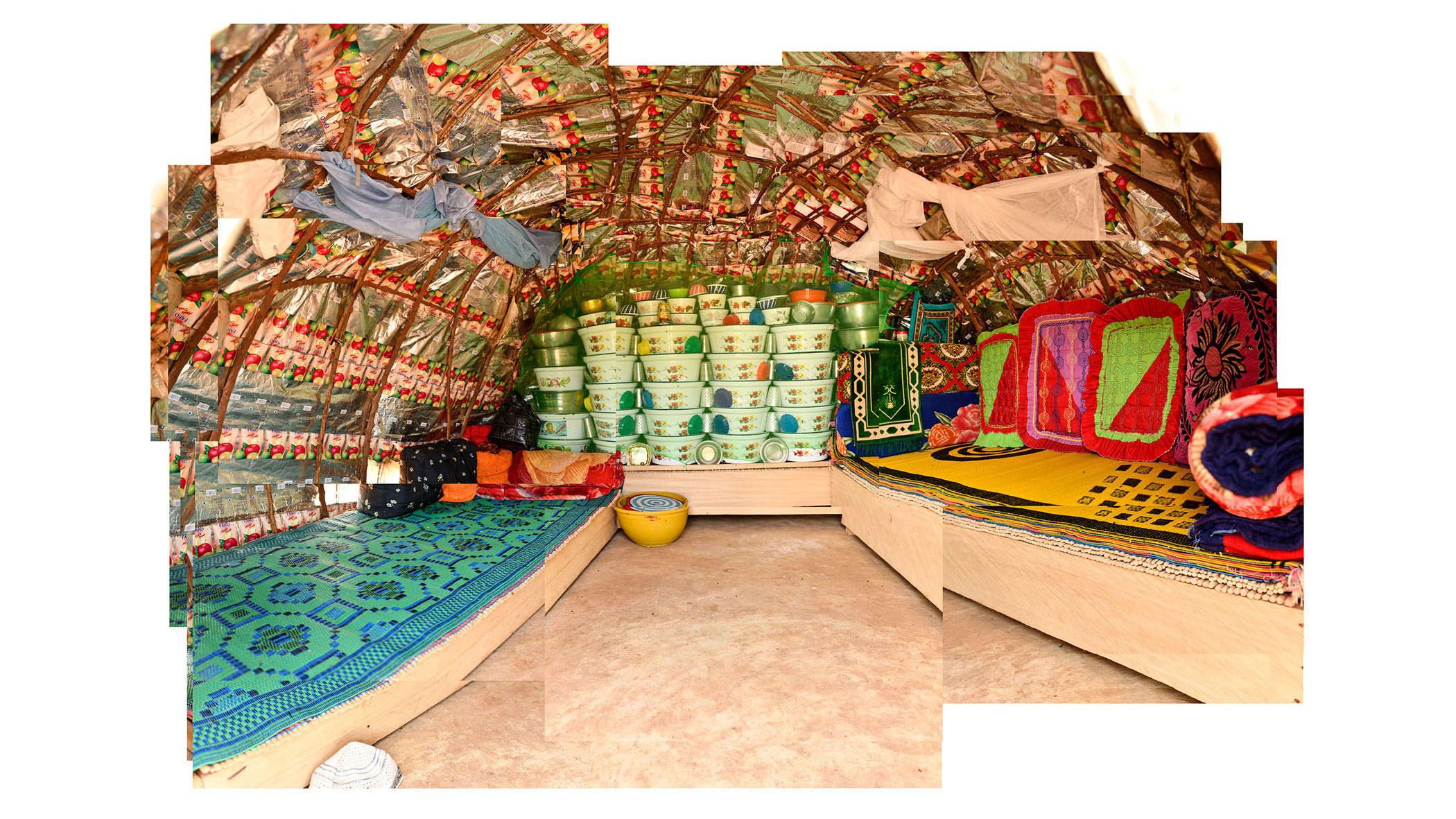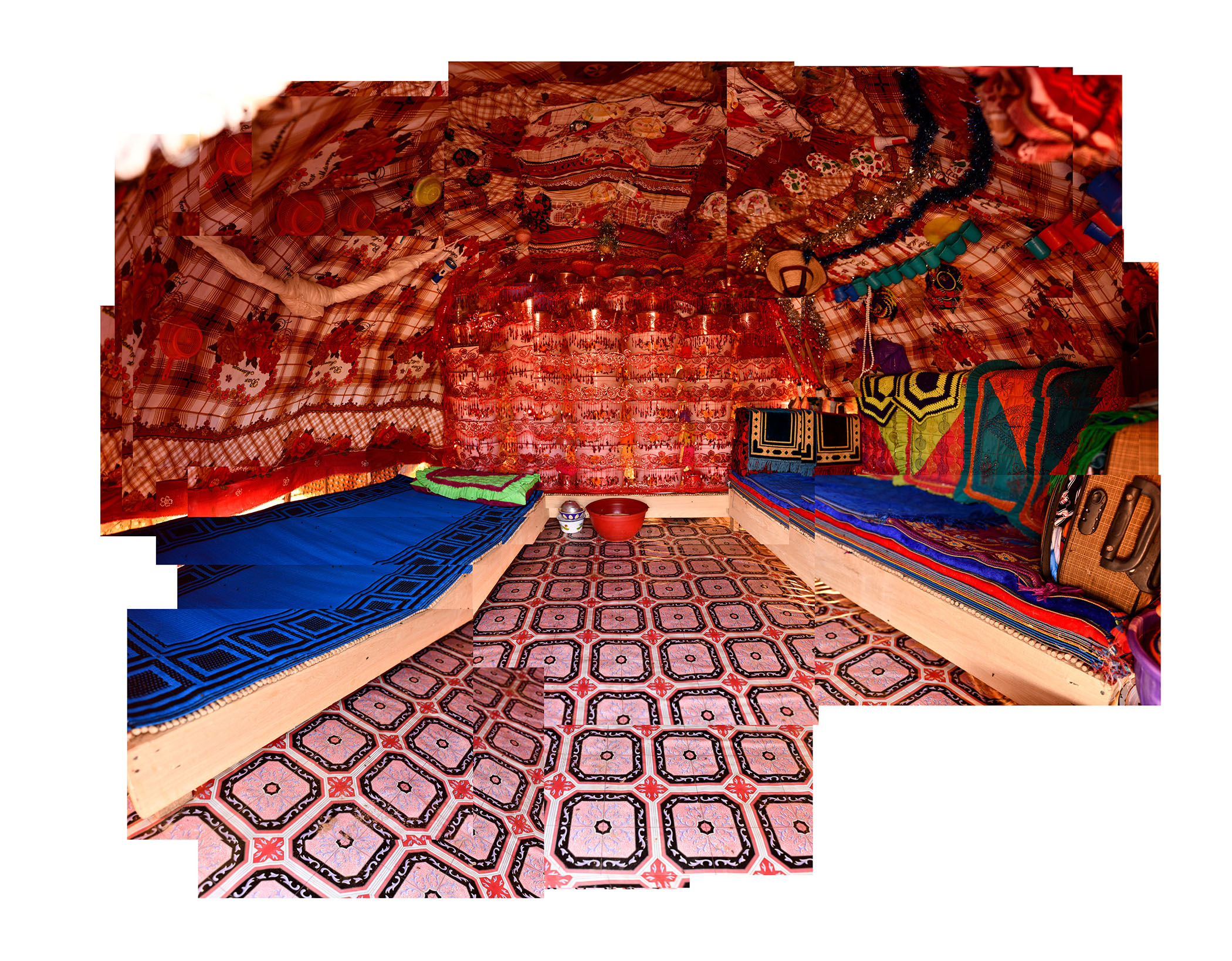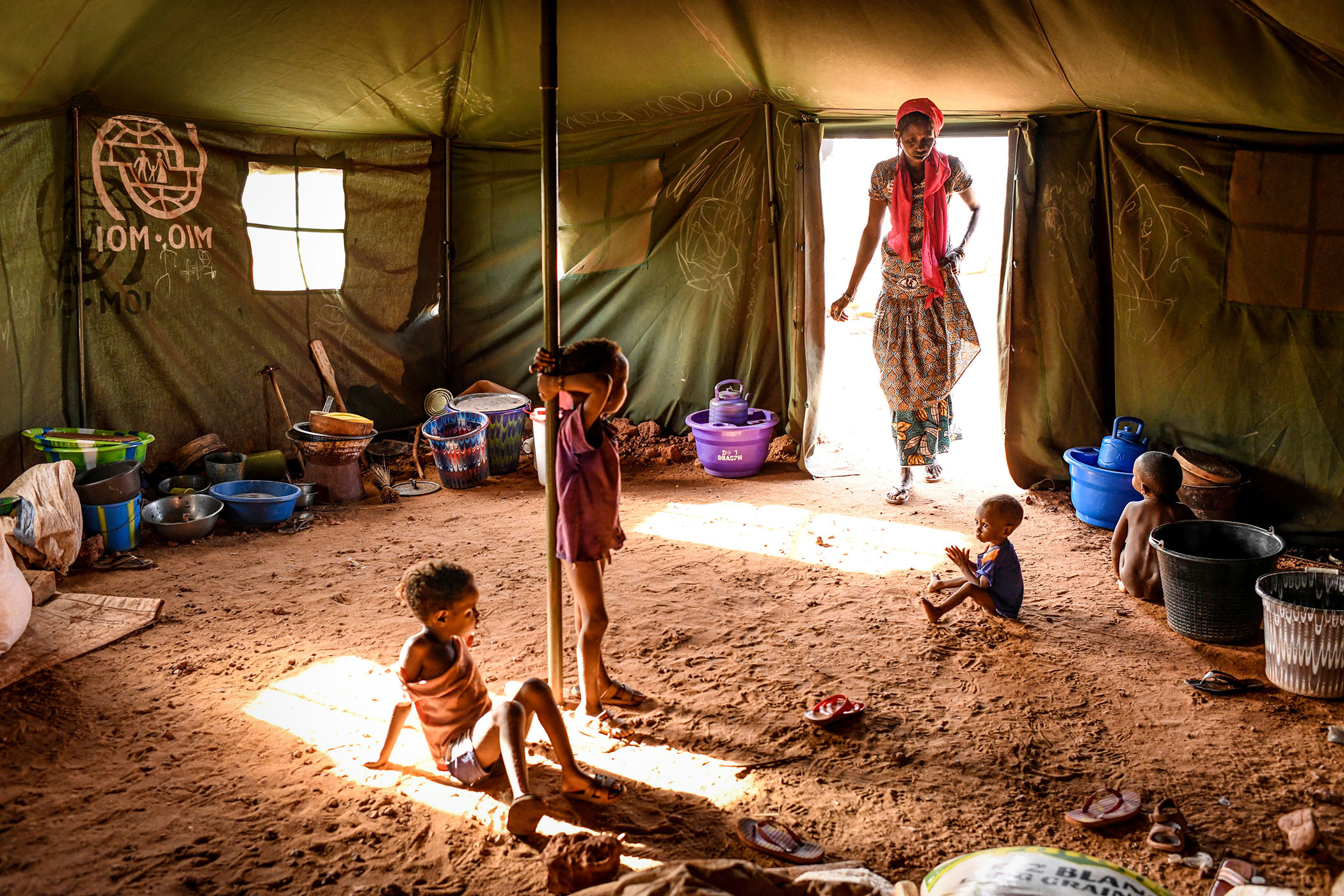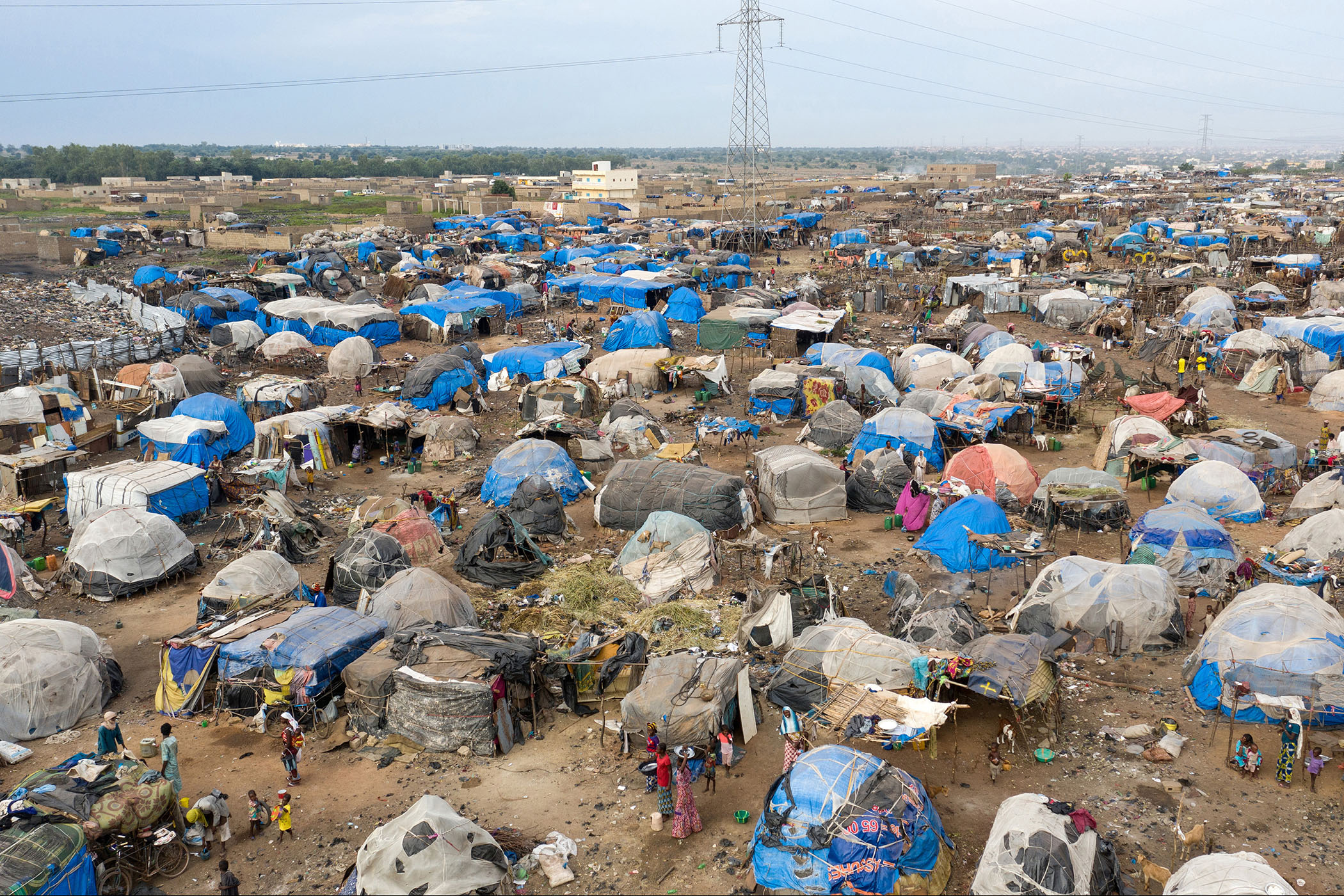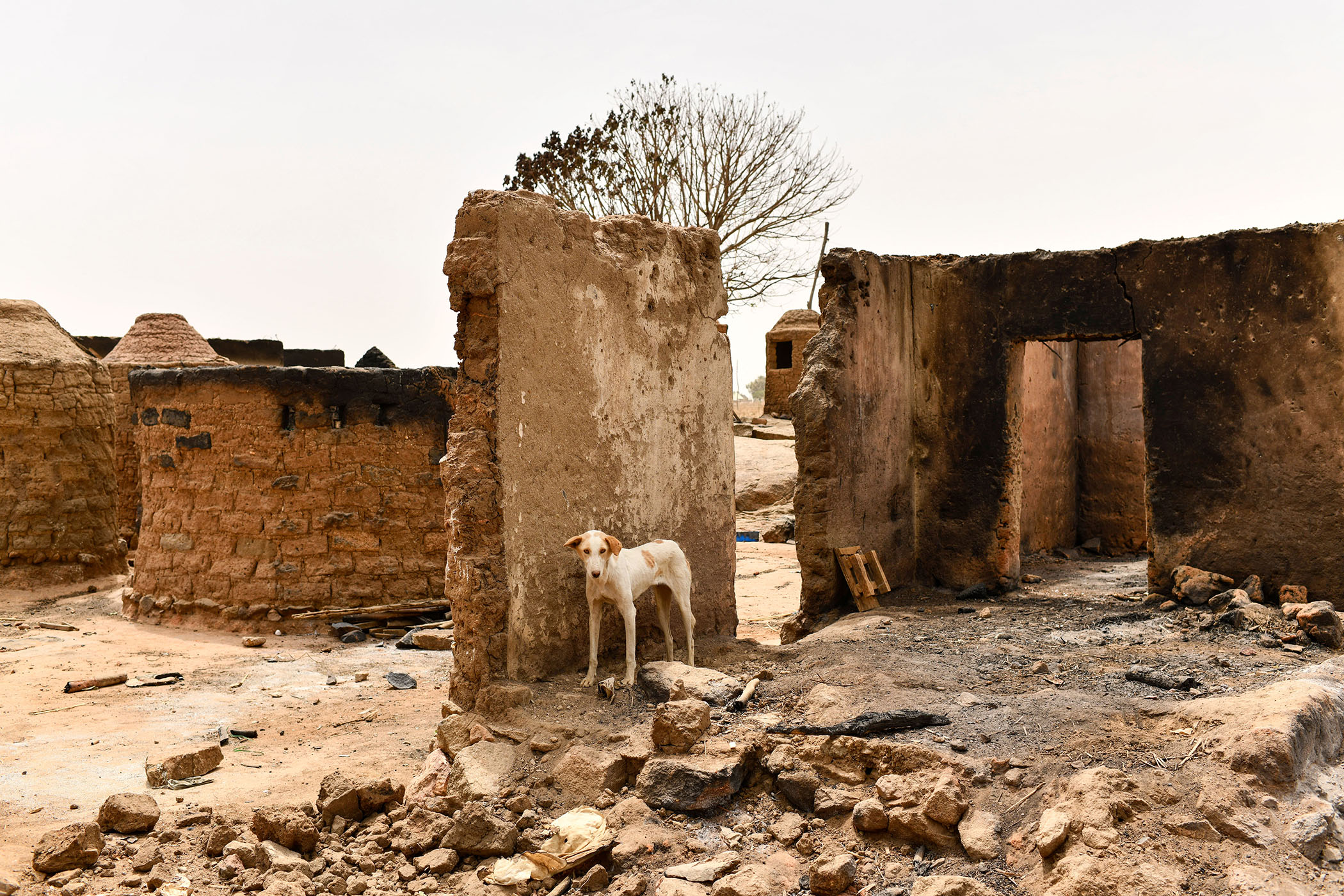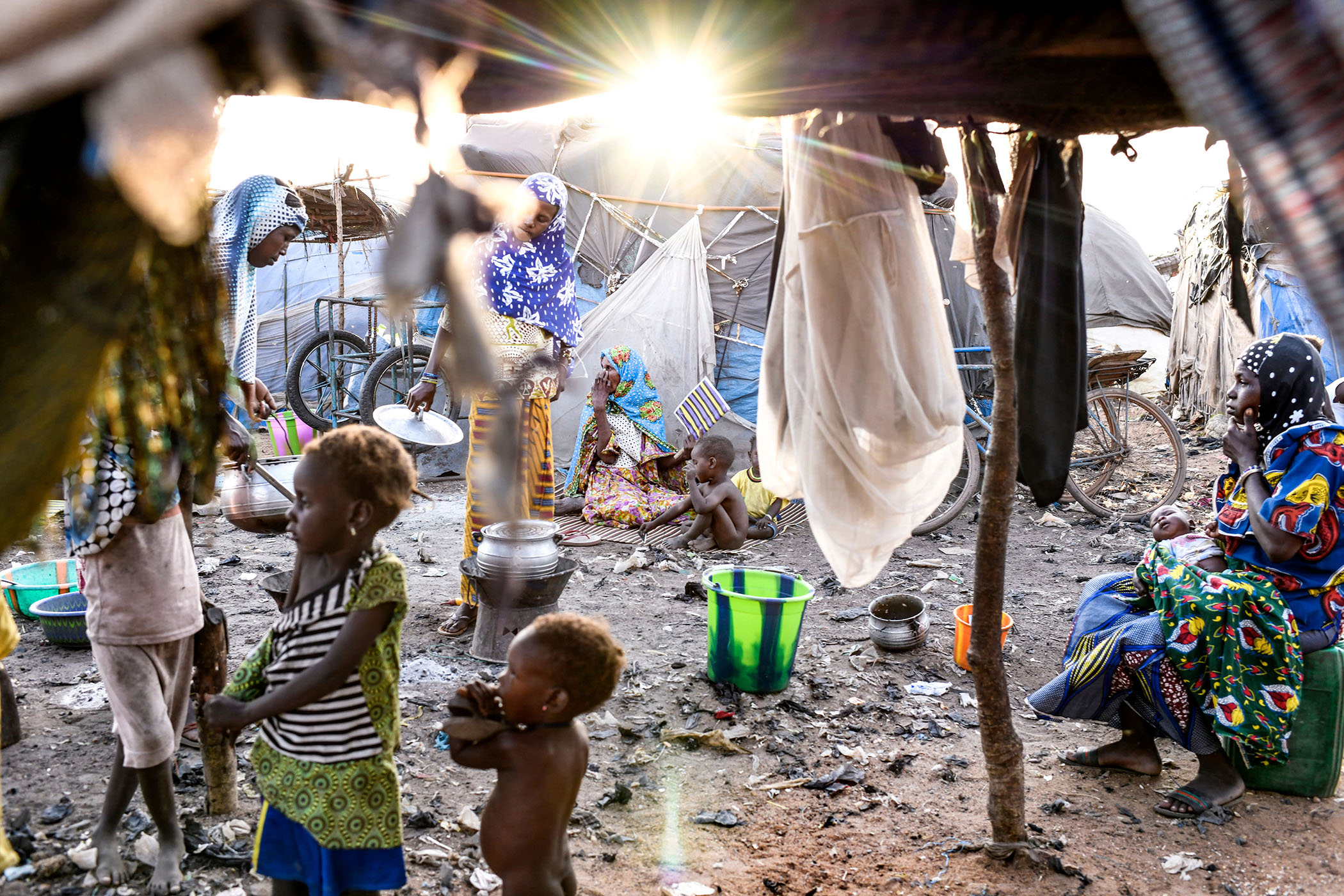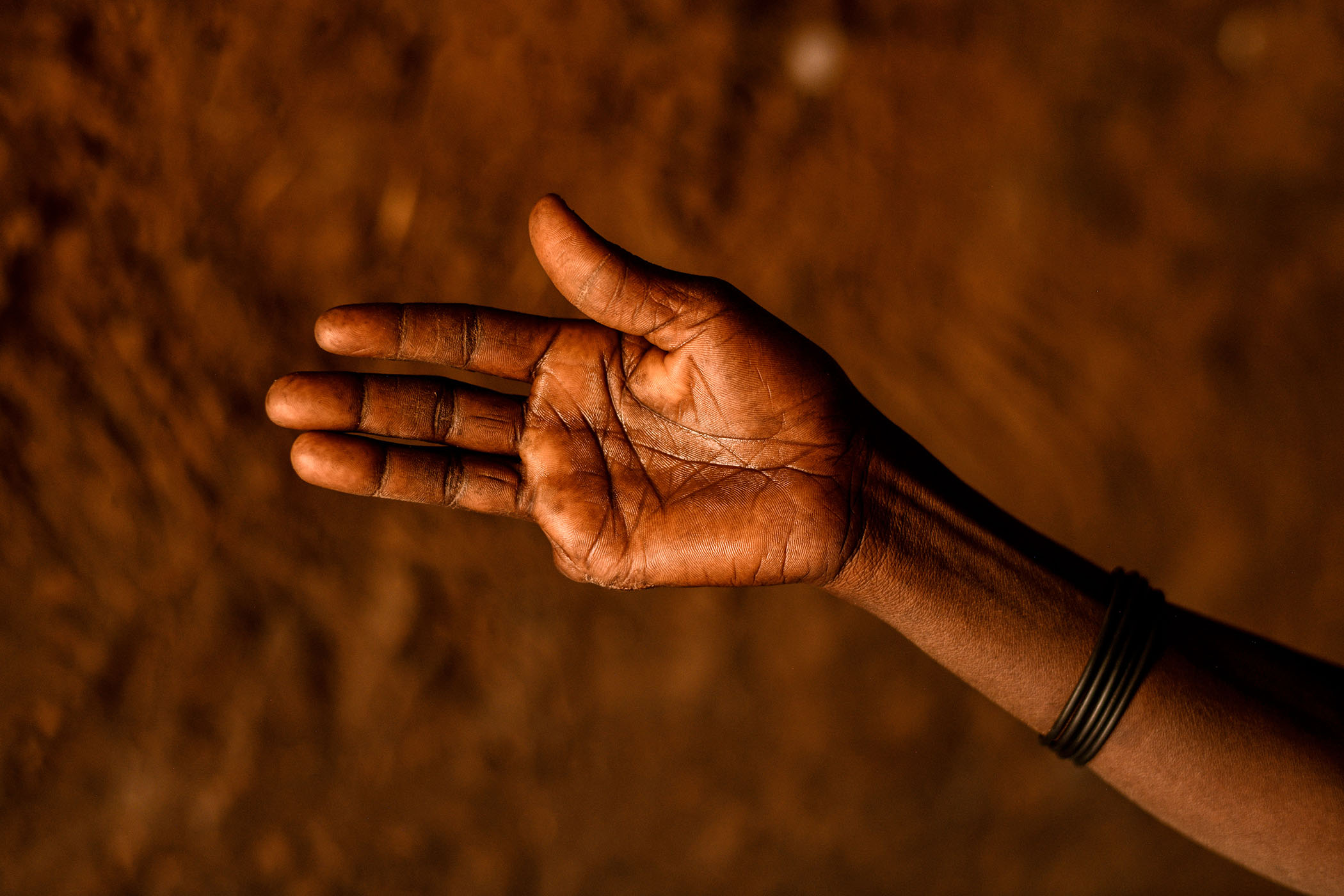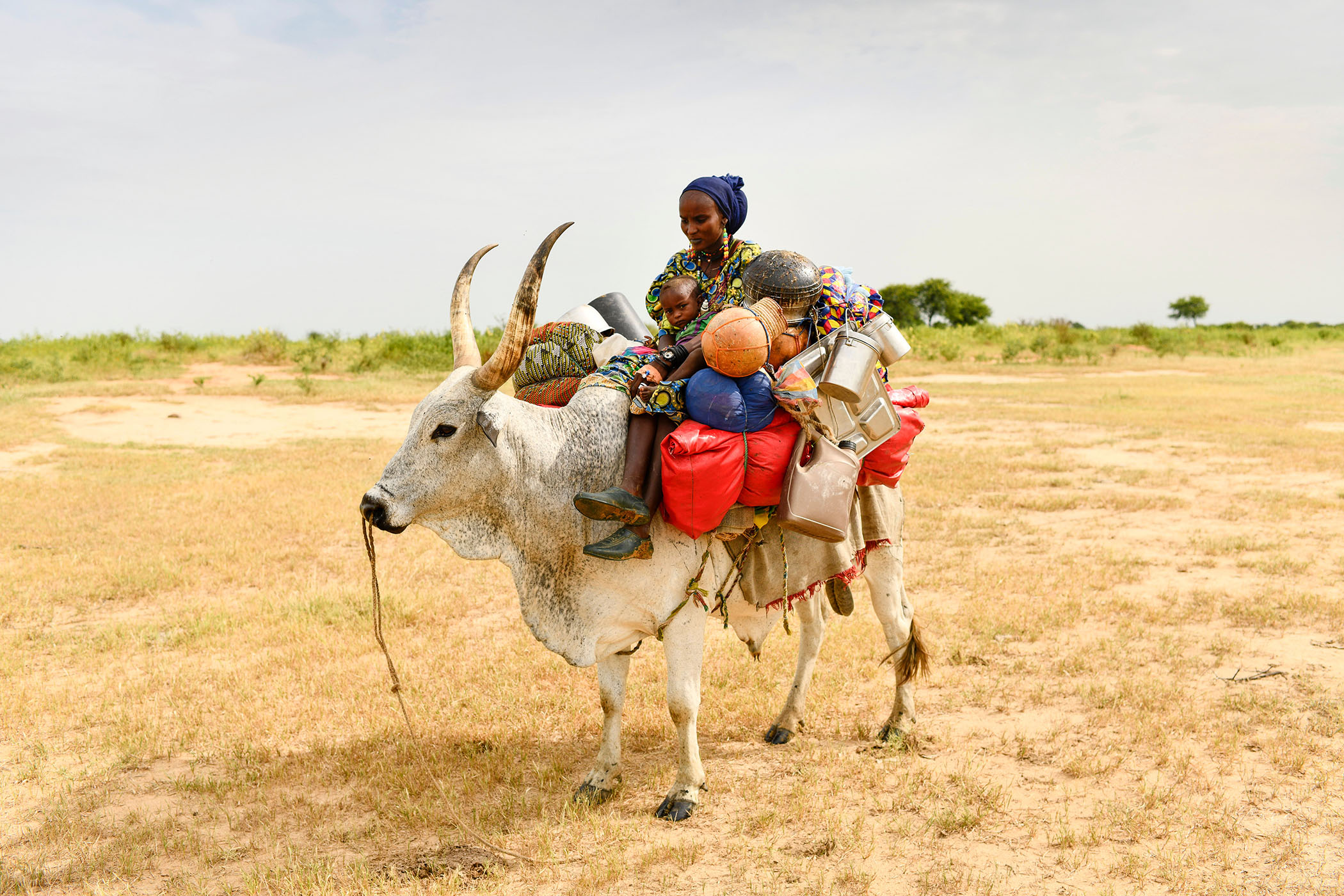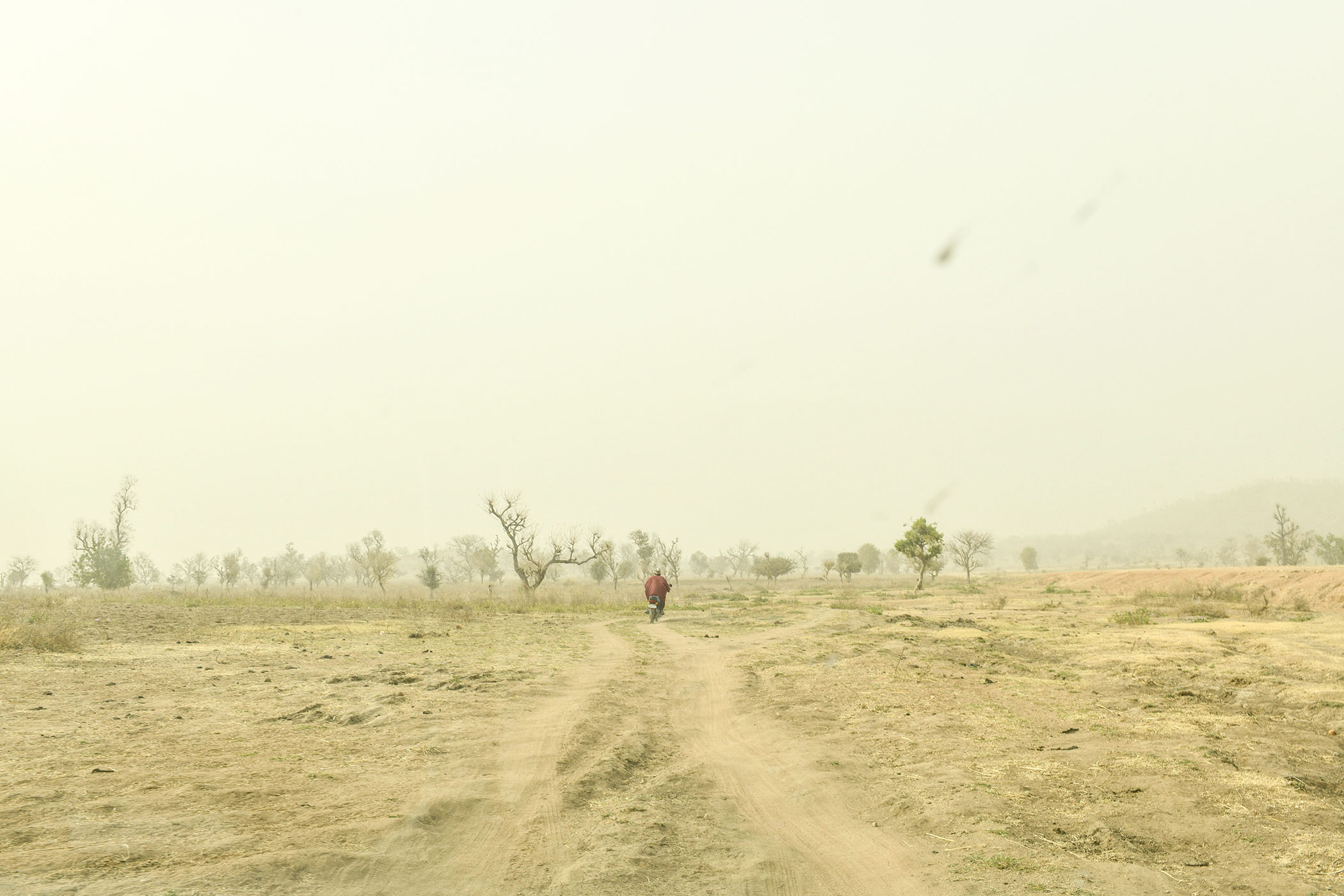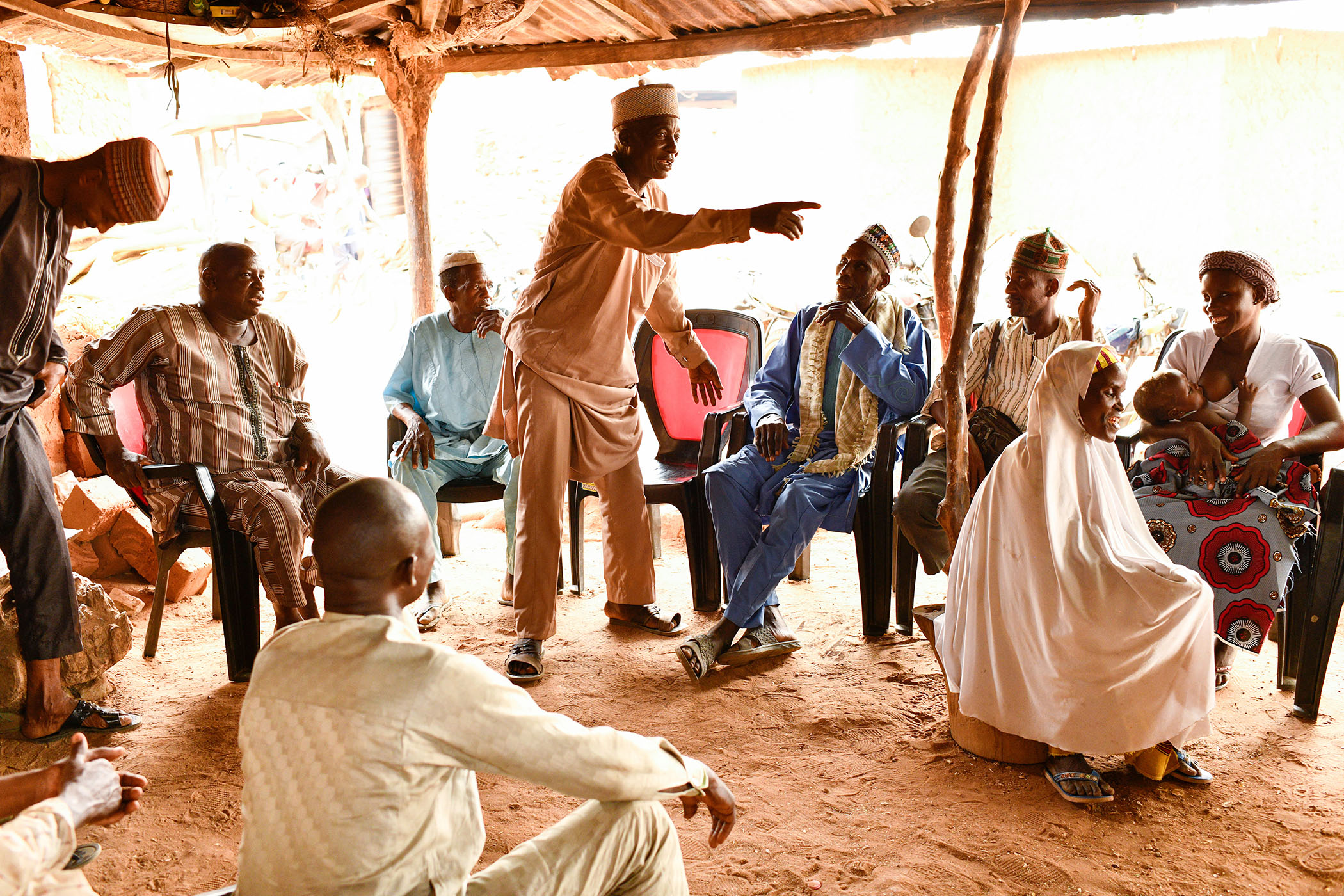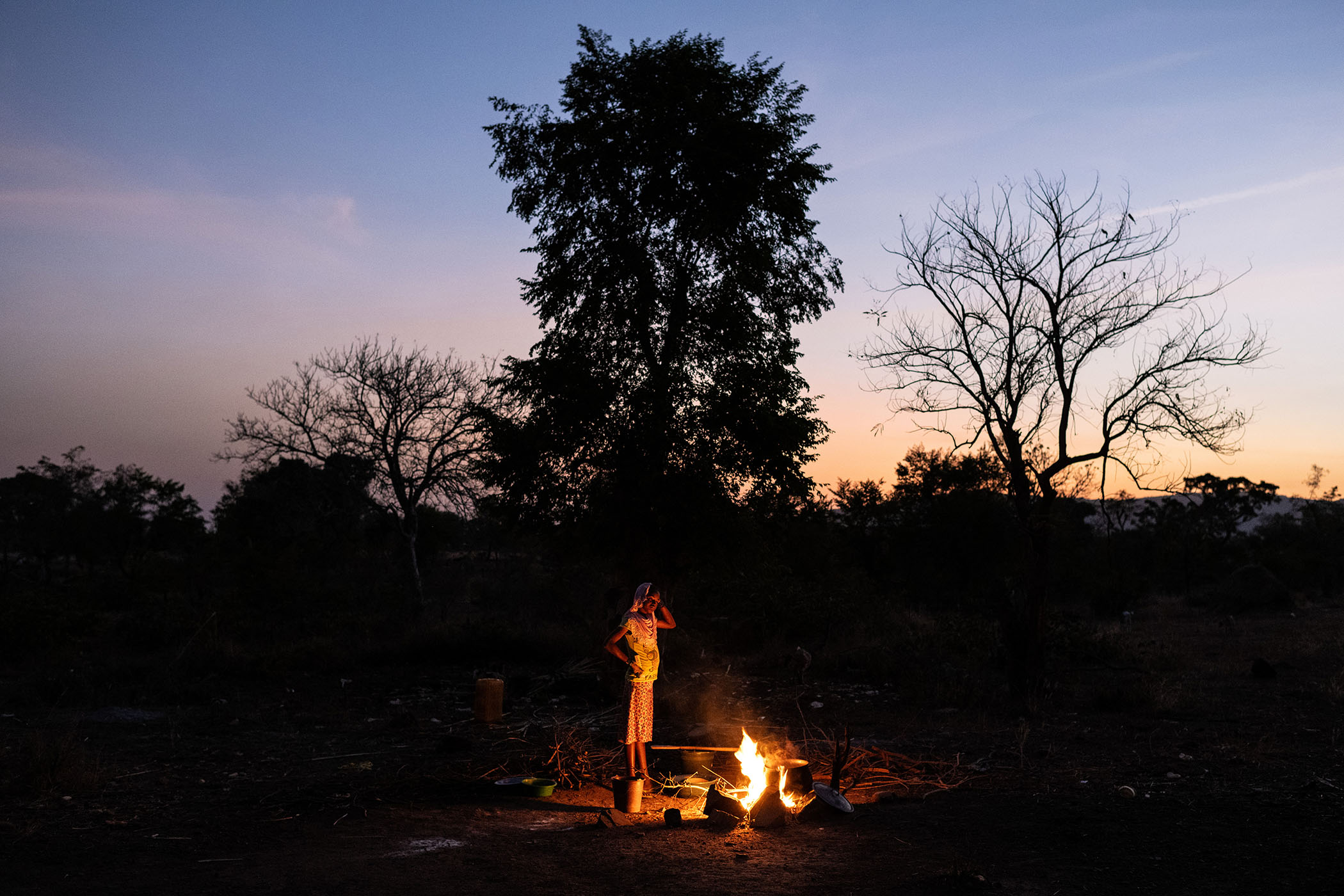The Nomadic Fulani are one of the largest nomadic groups in the world, spread over 20 countries in West and Central African Sahel. Year after year they herd livestock across the hot arid lands of the Sahel – the region below the Sahara - in search of fresh grasslands and accessible water as the seasons change. From the the western coast of Senegal to the eastern shoreline of Sudan herders follow migratory routes that can cover hundreds of miles.
Many of these predominantly Muslim peoples are no longer pastoralists, taking up farming or settling in cities. For those that continue to carry on their traditional practice life has always been tough with the last couple of decades particularly hard. Alongside the negative impact of climate change there has been regular and deadly conflict with settled farmers - a conflict over land and culture, religion and politics.
Trees growing from sandy soil in the Sahel.
They Fulani are not a single homogenous group but rather a collection of communities with a broad cultural identity linked by a common language, Fula or its regional
variations.
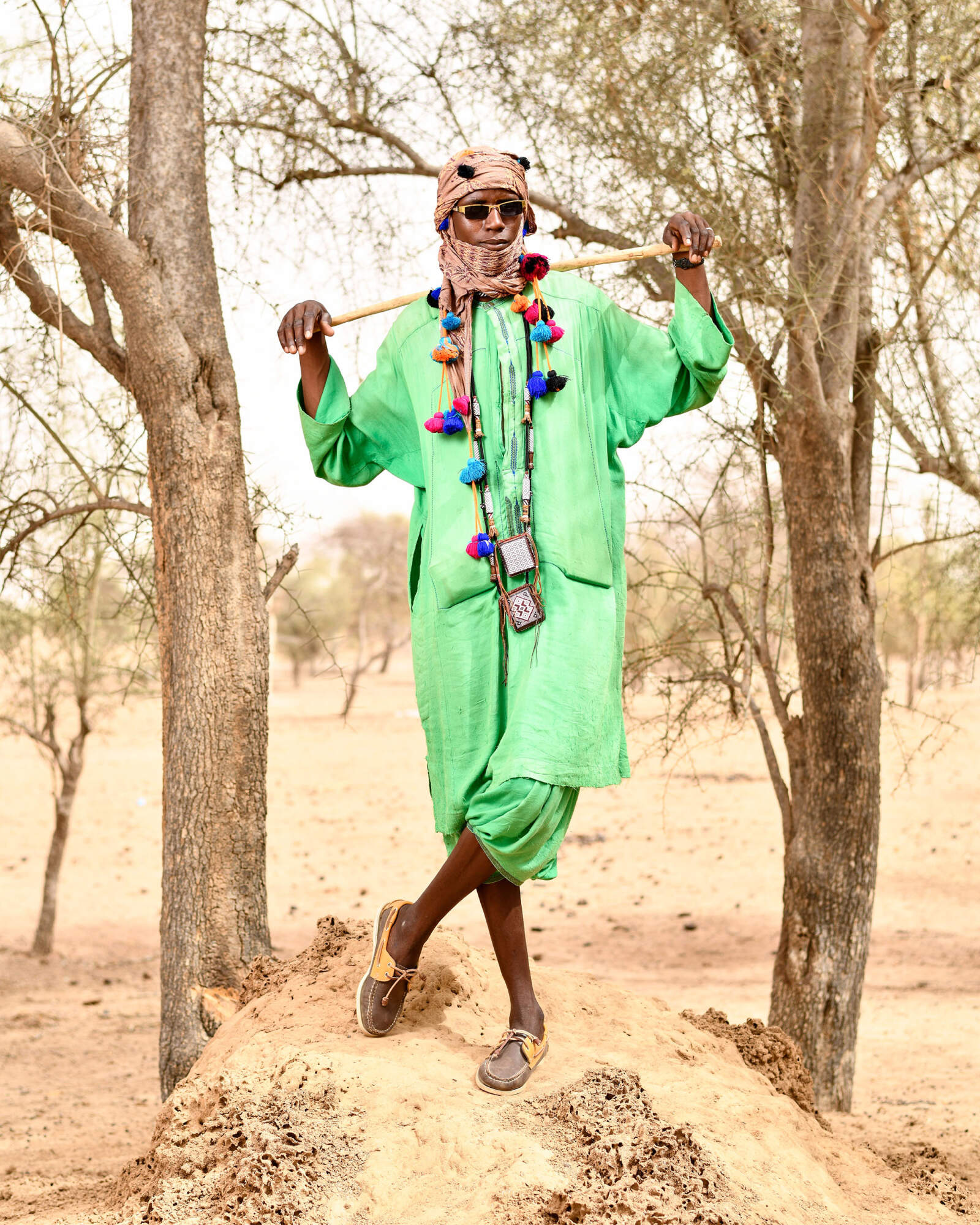
Daayle, Deali, Senegal. Alhajji Soh, 25, is a Fulbe (Fulani) nomadic herder of cattle, sheep and goats. When asked if he enjoys his work he says: "Sometimes I'm happy, sometimes I'm unhappy, If rainy season comes and we have grass and water I'm happy. Some years we don't have grass and water and we have to migrate,– at those times I'm unhappy." Depsite the hardships, he says: "I'd like to continue this life because it is our tradition."
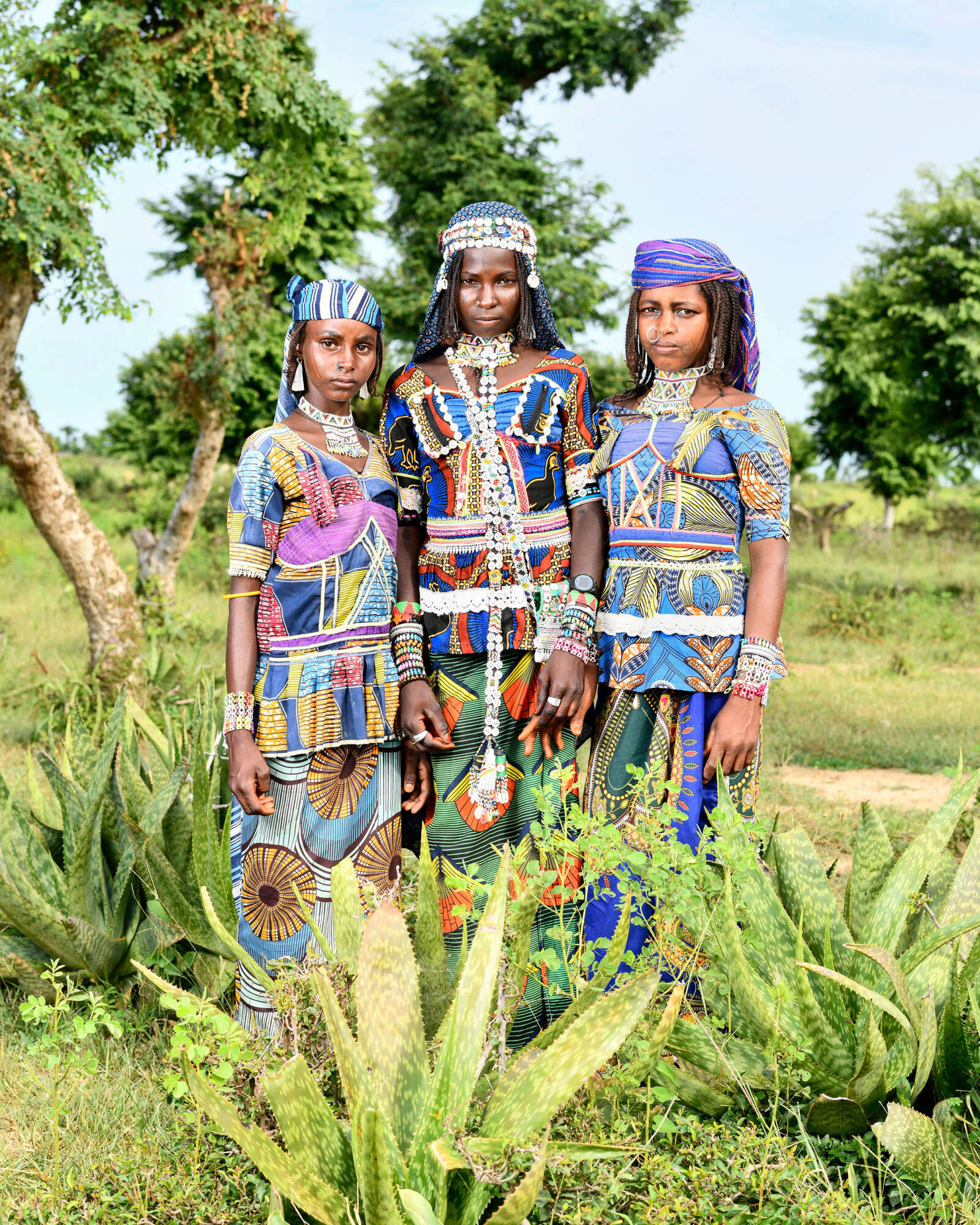
Foulou, Kaele Division, Cameroon. Three semi-nomadic Mbororo Fulani friends from left to right: Fadimatou Moussa (age unknown), Hawaou Hamadou and Amin Moussa, both 15 years-old.
Mbalka Luggere Colli, Raneeru Ferlo, Senegal. A herder with cattle at a Mbalka. Climate change has made the rains unpredictable and often shorter. Nomadic Fulbe (Fulani) herders often have to rely on pumped water to keep their animals alive until the rains finally arrive. A Mbalka is a place animals are brought to drink water.
Raneeru Ferlo, Senegal. A nomadic Fulbe (Fulani) herder gets a haircut at Mbalka Luggere Colli.
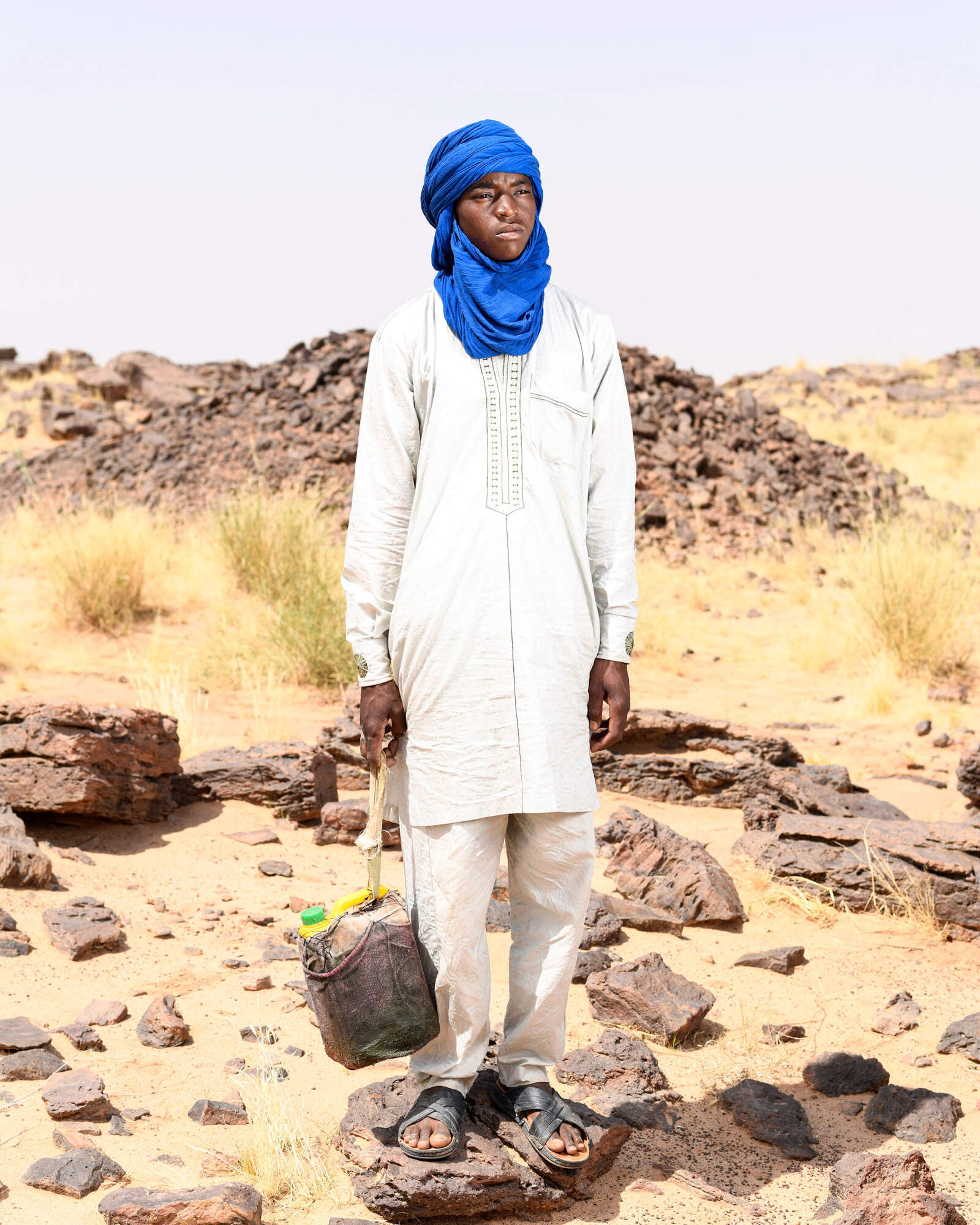
Ingal Department, Niger. Shay Doula, 16, is a semi-nomadic herder from Foudouk Village. Shay is attending the Guerouwel Fulani festival (end of rainy season festival where Fulani express their cultural beauty and where men are chosen by women for marriage).
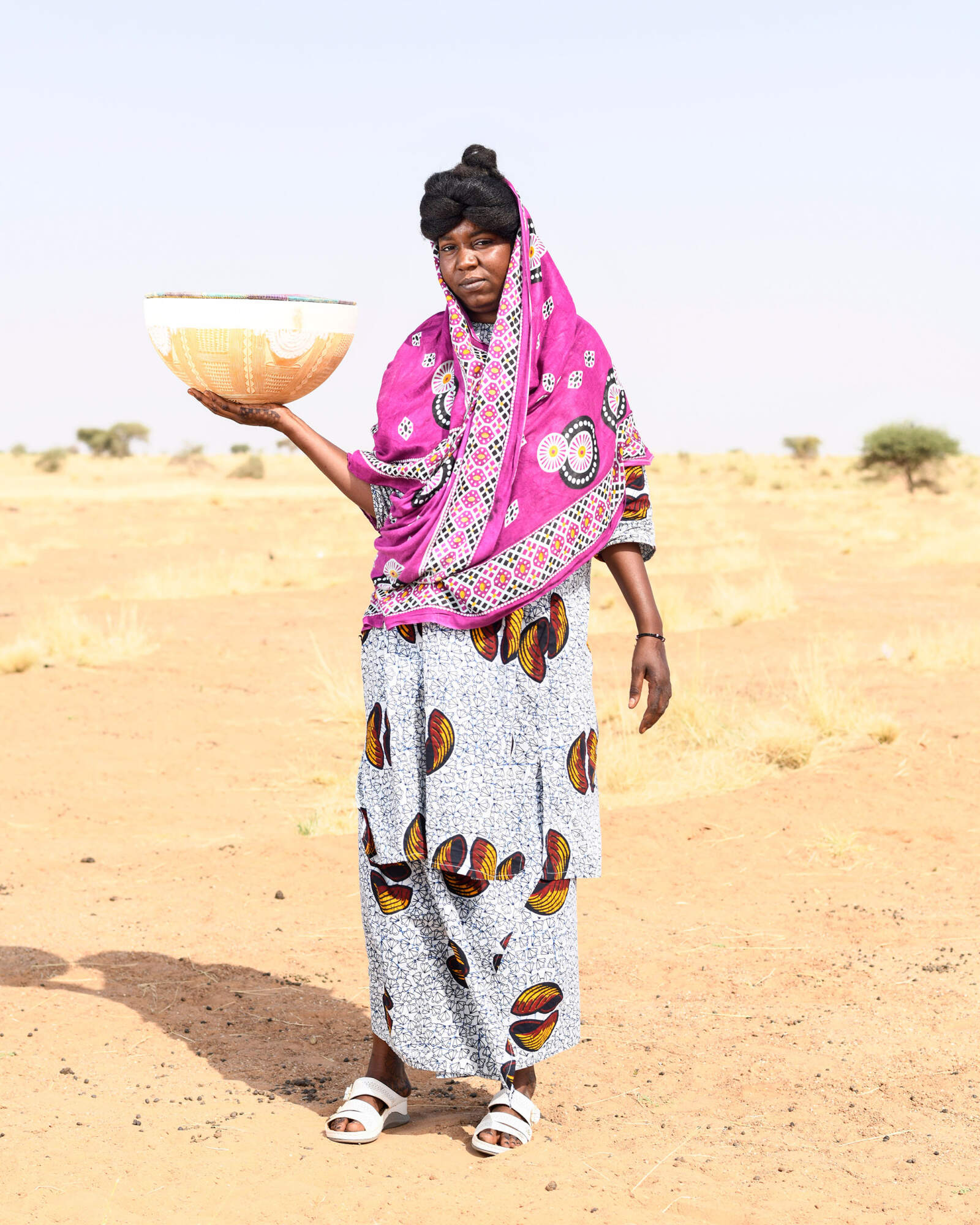
Ingal Department, Niger. Mariam Doula, 20, is a settled herder from Foudouk Village. Mariam is attending the Guerouwel Fulani festival (end of rainy season festival where Fulani express their cultural beauty and where men are chosen by women for marriage).
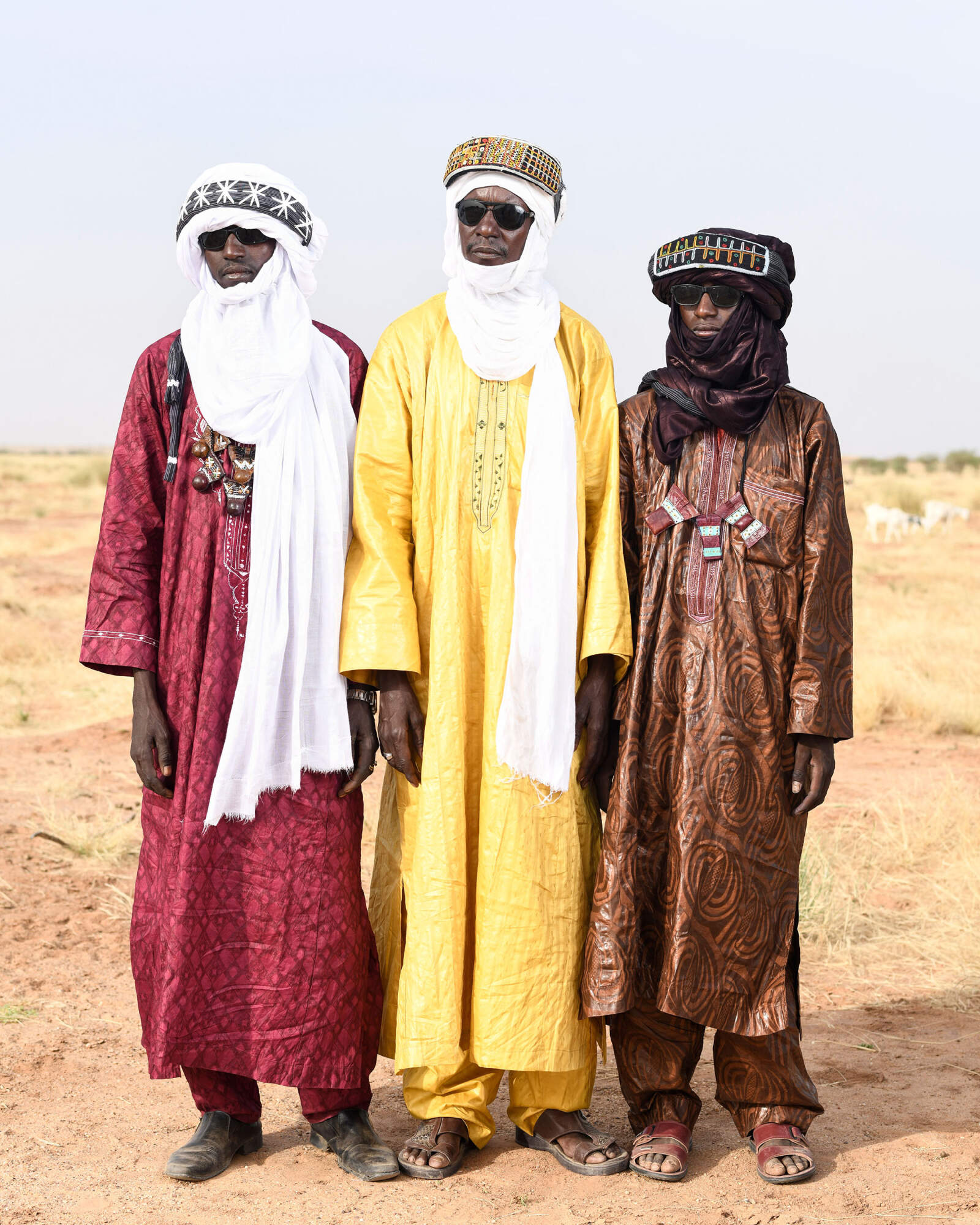
Ingal Department, Niger. From left to right: Juti Halilou, 32, Inoua Halilou, 40, Barti Maiji, 22. All are from Tchicoerine. They are attending the Guerouwel Fulani festival (end of the rainy season festival where Fulani express their cultural beauty and where men are chosen by women for marriage). Celebrated this year in Foudouk Village.
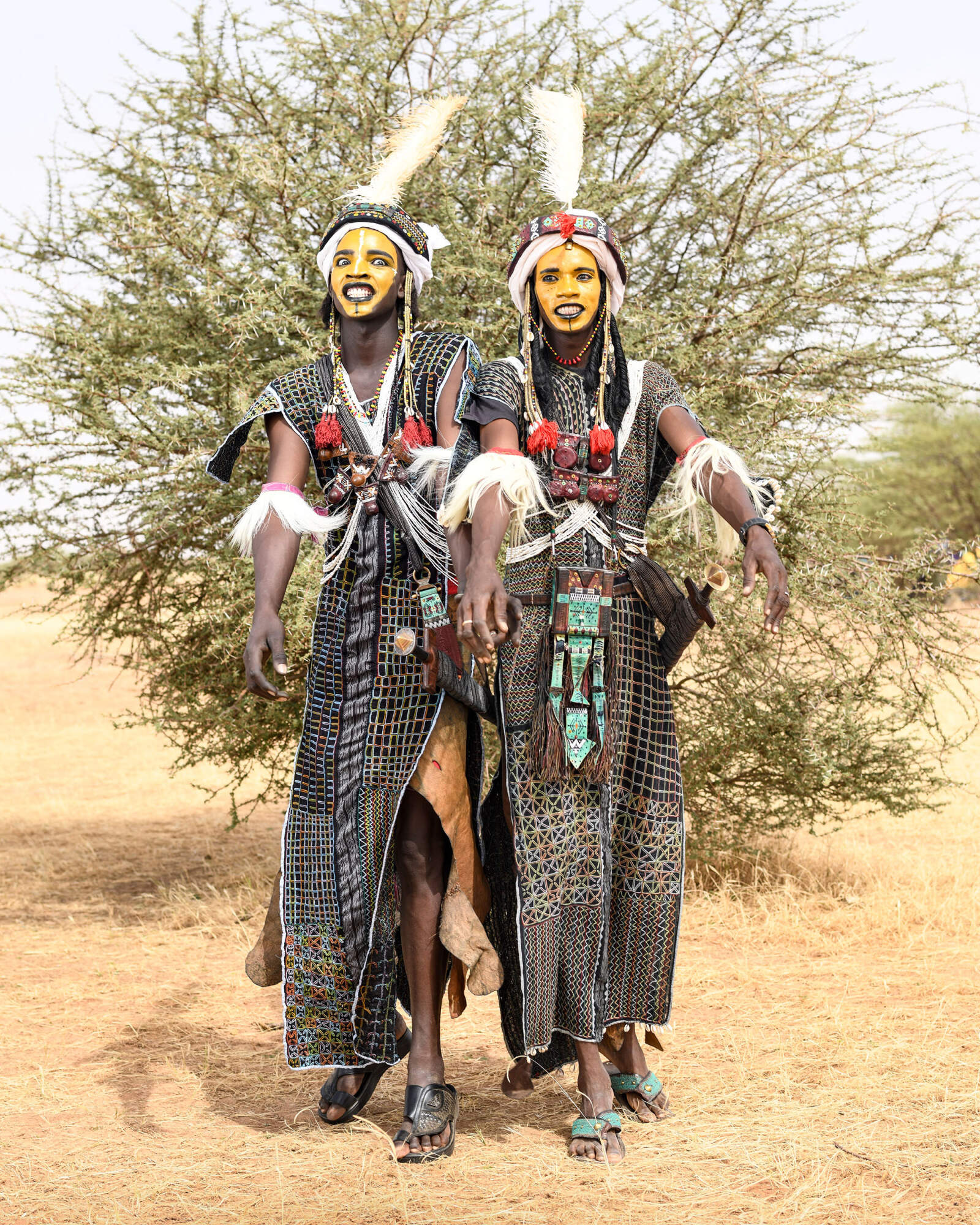
Ingal Department, Niger. Herdsmen from left to right: Ambola Warzagan, 20, Rebo Halilou, 22, dressed in Hennarai Fulani costume used only for the Guerouwel festival and worn during the Tchirae, an occasion where young men dance to attract women whom will select the men of their choice, even if they are married. The men are from Tchirozerine. For three or four months of the year they leave the city to search for pastures for their cattle. They are attending the Guerouwel Fulani festival (end of the rainy season festival where Fulani express their cultural beauty and where men are chosen by women for marriage). Celebrated this year in Foudouk Village.
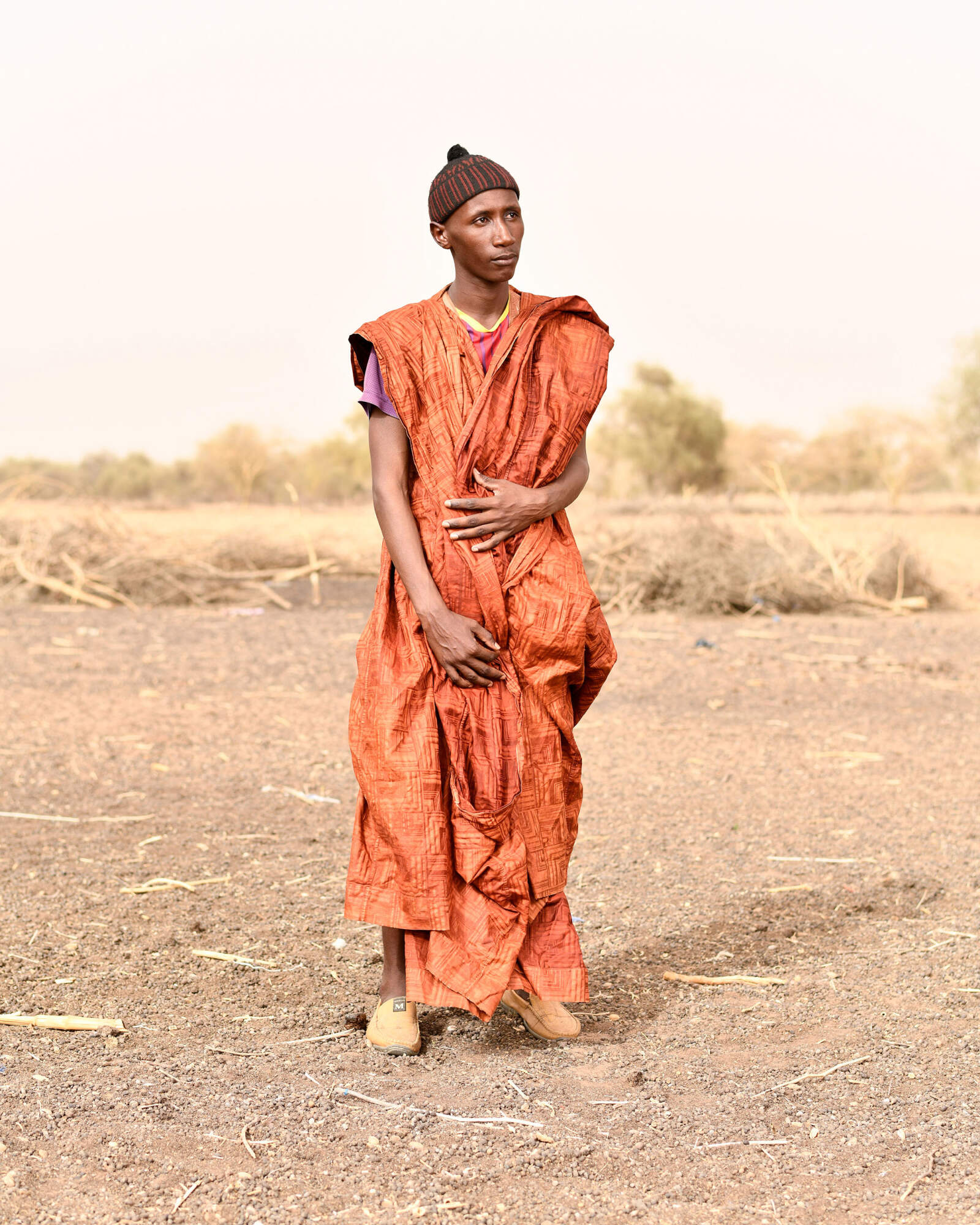
Daayle, Deali, Senegal. Aawdi Kah. 28, is a Fulbe (Fulani) nomadic herder of goats and sheep and father of three. "I've been herding since I was nine", he says. "I bought cows, but they're gone now… three times cows miscarried and died. I sold the other cows because we don't have grass and when there's no grass they can't give birth." Asked if he wishes he could do something else he says: "Since the time of our forefathers our animals have provided us with everything: food and clothes and everything… My dream is only herding and farming because I haven't been to school so I'm afraid to do something I don't know. I only know this thing."
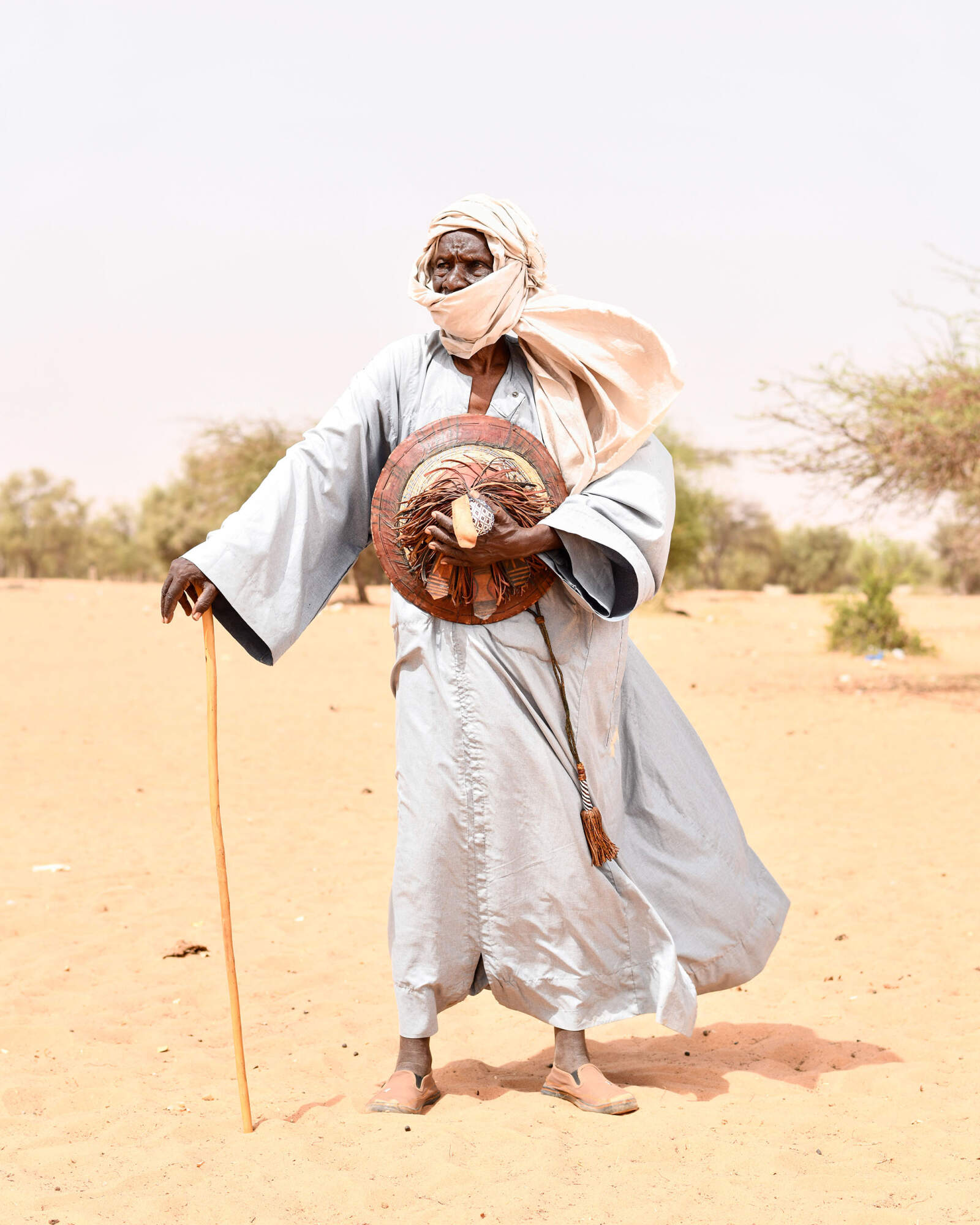
Dahra, Senegal. Booydo Biram Kah, 82, is head of the Daral Dahra Jolof, the cattle market in the city of Dhara that takes place every Sunday. He is a Fulbe (Fulani) nomadic herder and trader of cows. "When I was a young boy everything was good. We had grass. We had water. Now we have water but no grass. Without grass the cows will die. If they die, also we will die. Herding and breeding, it is all we can do."
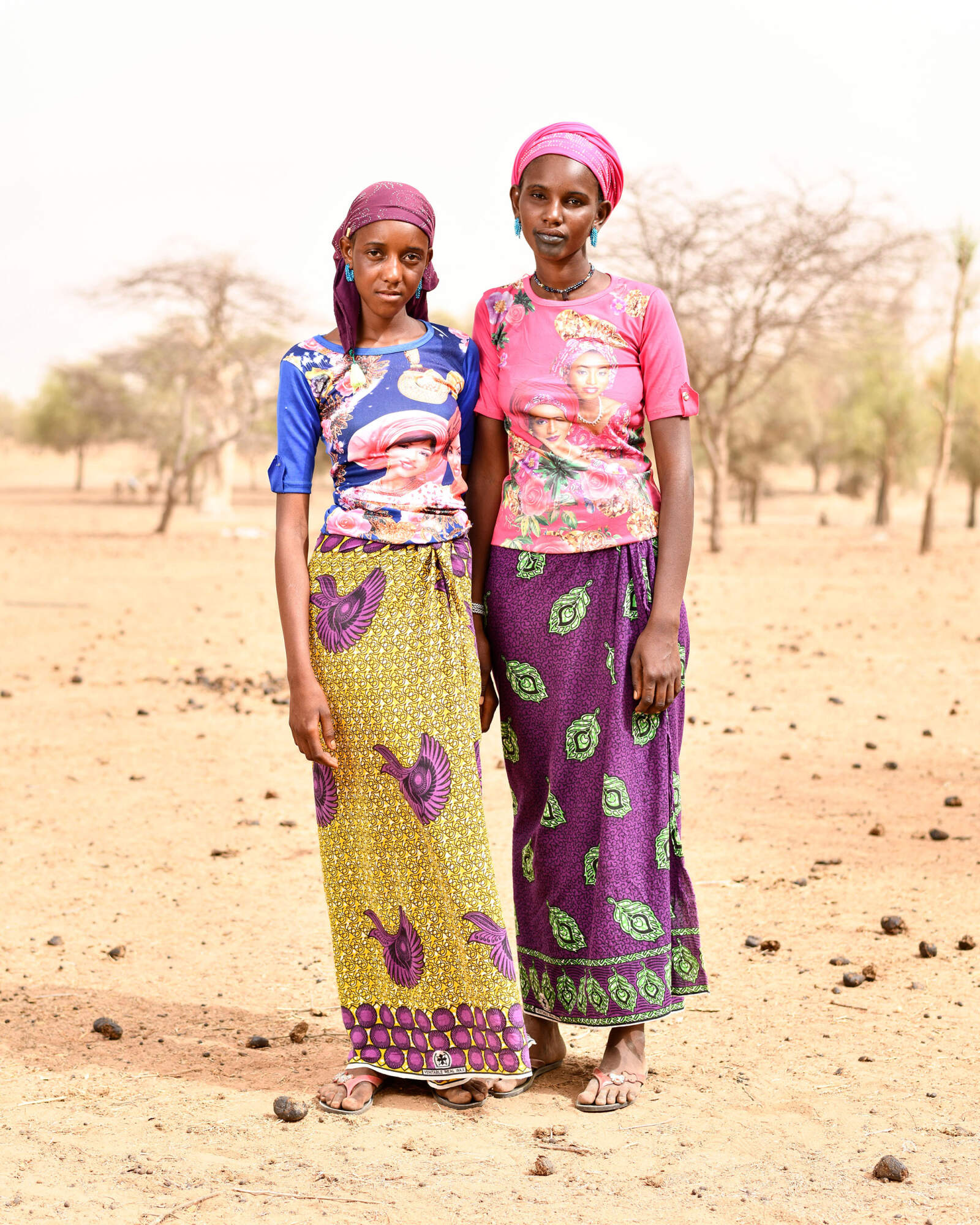
Daayle, Deali, Senegal. 'Co-wives' Kura Soh, 20 (left) and Naana Soh (18). They are Fulbe (Fulani) nomads. When asked if she enjoys her nomadic life, Kura says: "It is very hard but I have to continue this life. This is all I know."
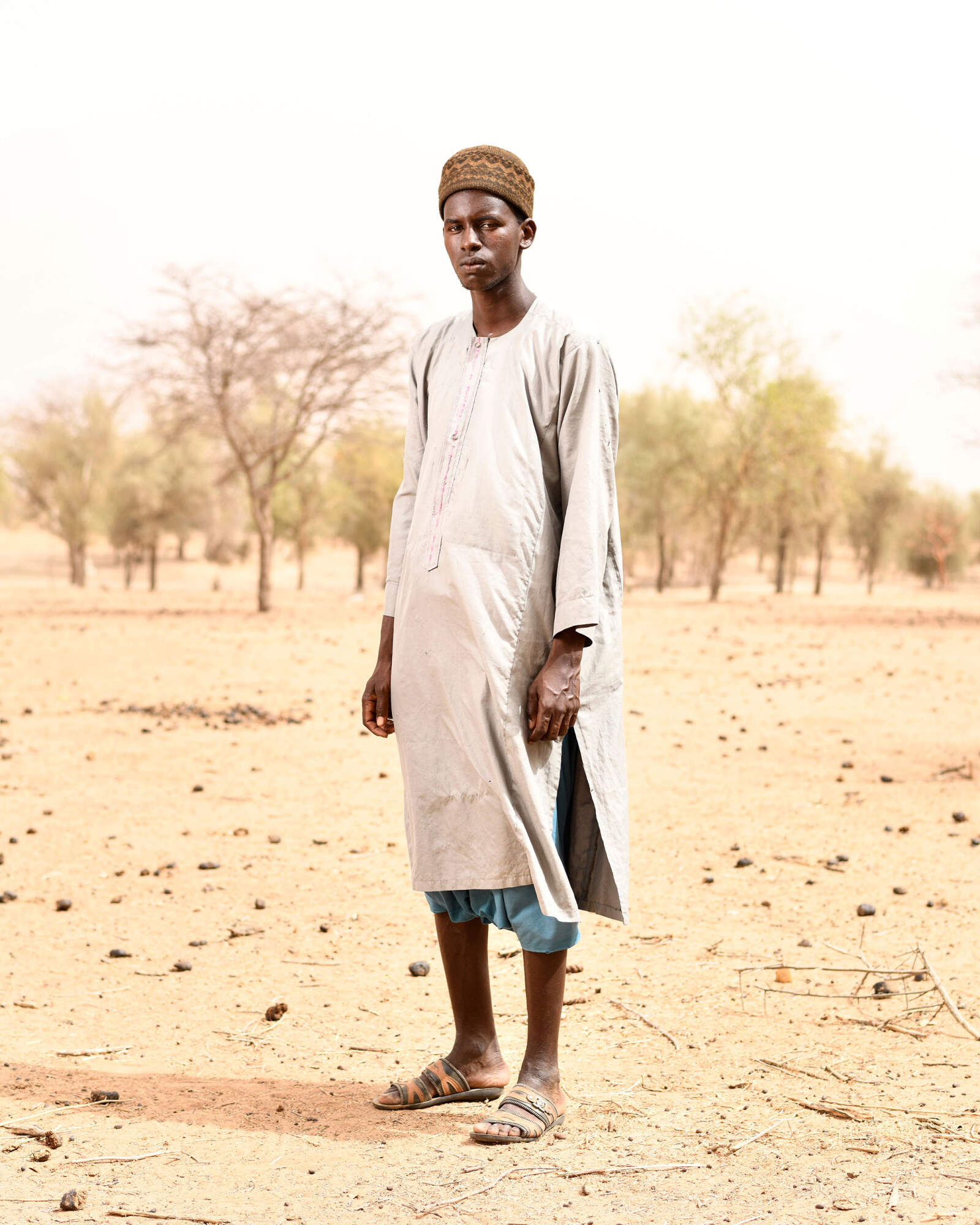
Daayle, Deali, Senegal. Usmaan Soh, 27, is a Fulbe (Fulani) nomadic herder of sheep and father of two. When asked how life is as a herder he says: "Sometime herding is hard, sometimes it's not. Now we don't have food for the animals. We have to buy it and it is hard. We have to walk five kilometers to get water and bring it back." But it's not all bad he says: "The positive thing about my life is that I am carrying on the Fulani tradition." But, he says, "I'd like to be doing something different though. I'd like to trade animals in Dakar."
Agadez Region, Niger. Fulani nomadic herds people from the Fulani semi-nomadic village of Djalo.
Fulani culture is amazing and unique, but it’s important not to romanticise. Many herders are struggling to survive”
writes Robin Hammond who visited seven countries over six years to gain an insight into these often misunderstood communities.
Barkin-Ladi, Plateau State, Nigeria. A herd of cattle belonging to Fulani pastorialists.
The cow is an essential part of Fulani identity. They are a source of wealth, status and food. They are also the reason why nomadic Fulani are nomads
Senegal. Daral Dahra Jolof, the cattle market in the city of Dhara that takes place every Sunday.
Adamawa State, Nigeria. Ngurore Cattle Market.
Barkin-Ladi, Plateau State, Nigeria. Fulani herder boys with cattle they are looking after.
Foulou, Kaele Division, Far North, Cameroon. Semi-nomadic Mbororo Fulani women feeds milk to a child from a calabash bowl.
Mobono, Kaele, Far North, Cameroon. Semi-nomadic Mbororo Fulani milking their cows.
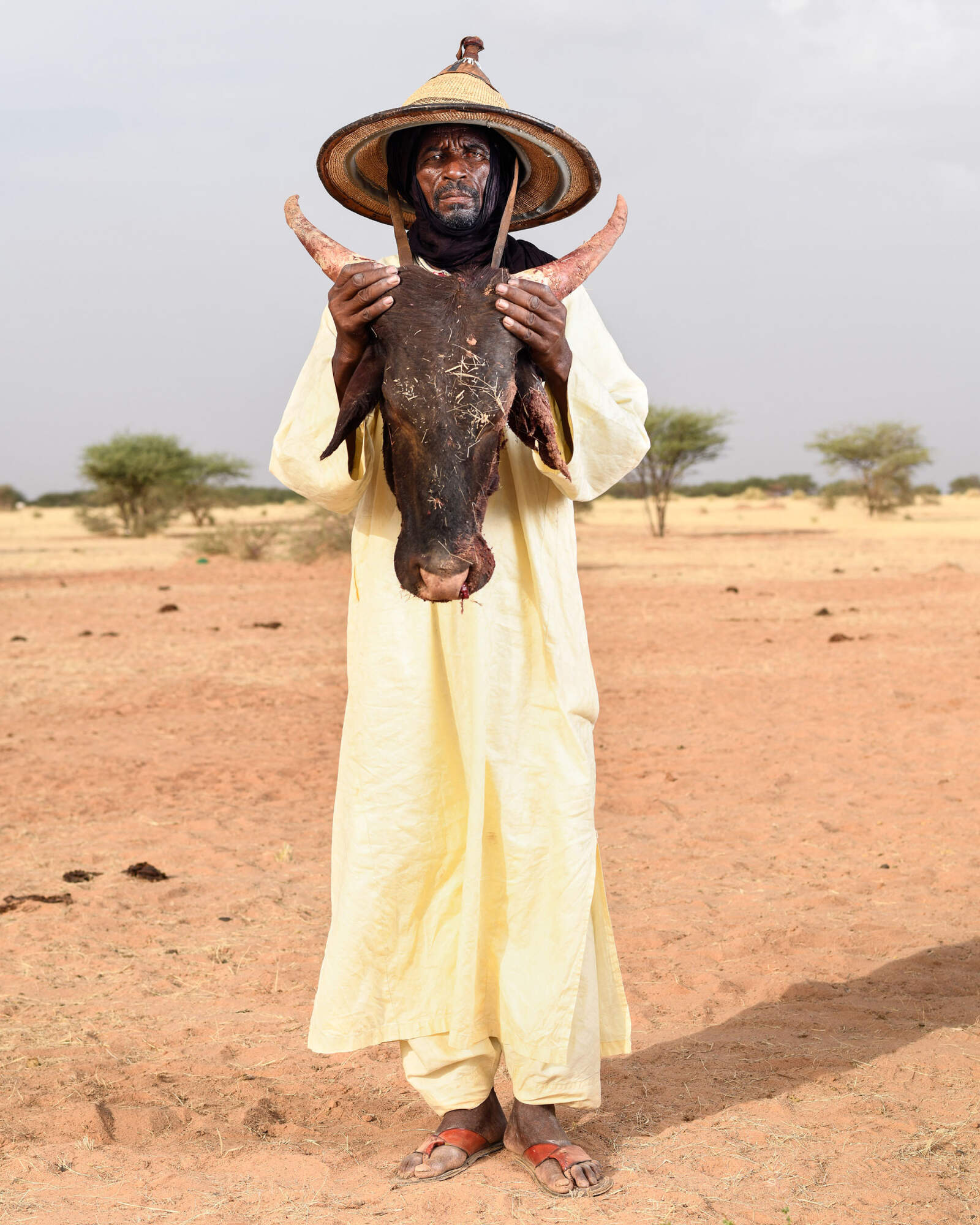
Ingal Department, Niger. Dadi Dede, 65, a herdman from Aderbissanet, Tchiro Department, with the head of a slaughtered cattle. He is attending the Guerouwel Fulani festival (end of rainy season festival where Fulani express their cultural beauty and where men are chosen by women for marriage).
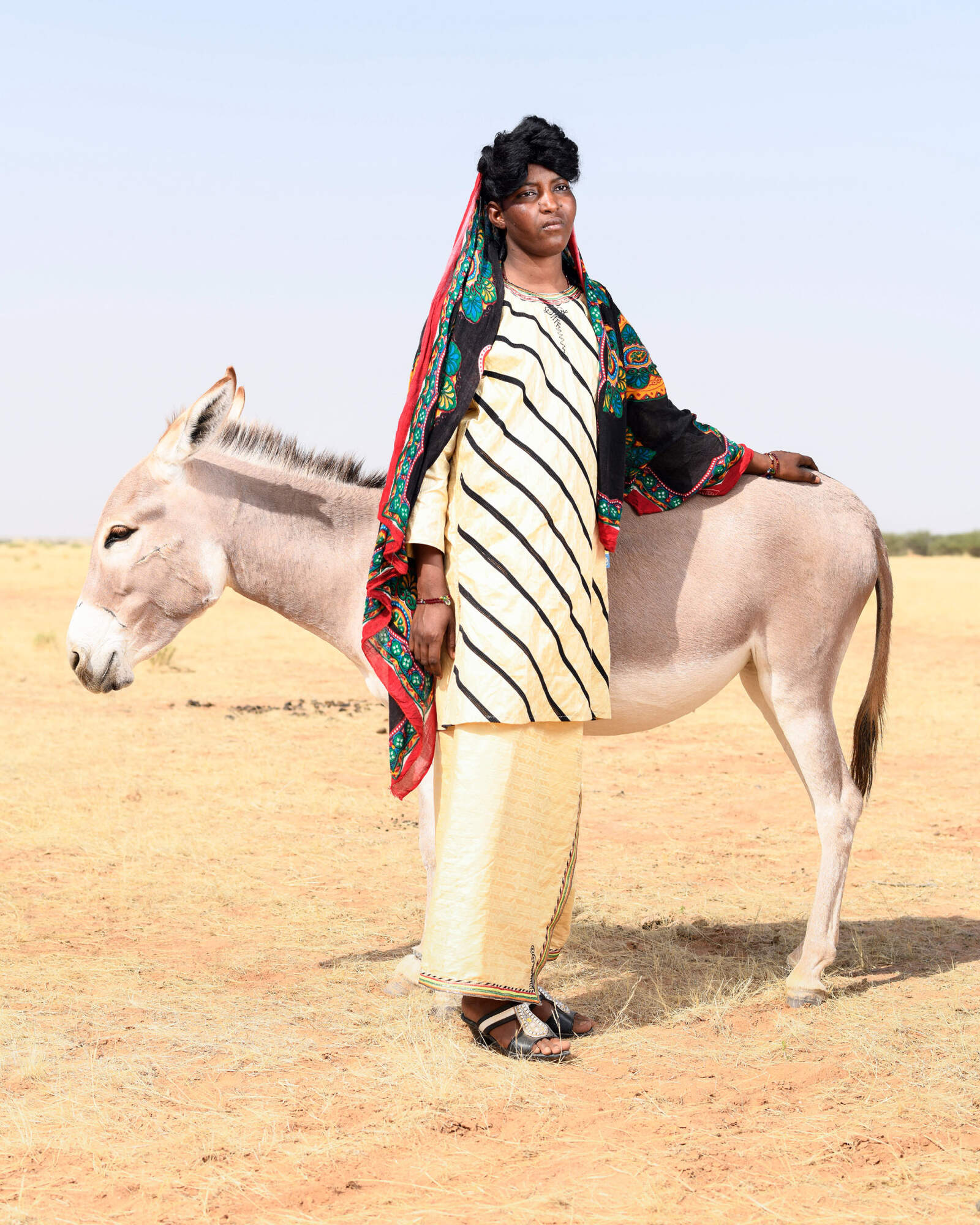
Ingal Department, Niger. Mariam Ribo, 15 years-old, is from Kainichi Village. She is from a semi-nomadic family of cattle and goat herders. She is attending the Guerouwel Fulani festival (end of the rainy season festival where Fulani express their cultural beauty and where men are chosen by women for marriage). Celebrated this year in Foudouk Village.
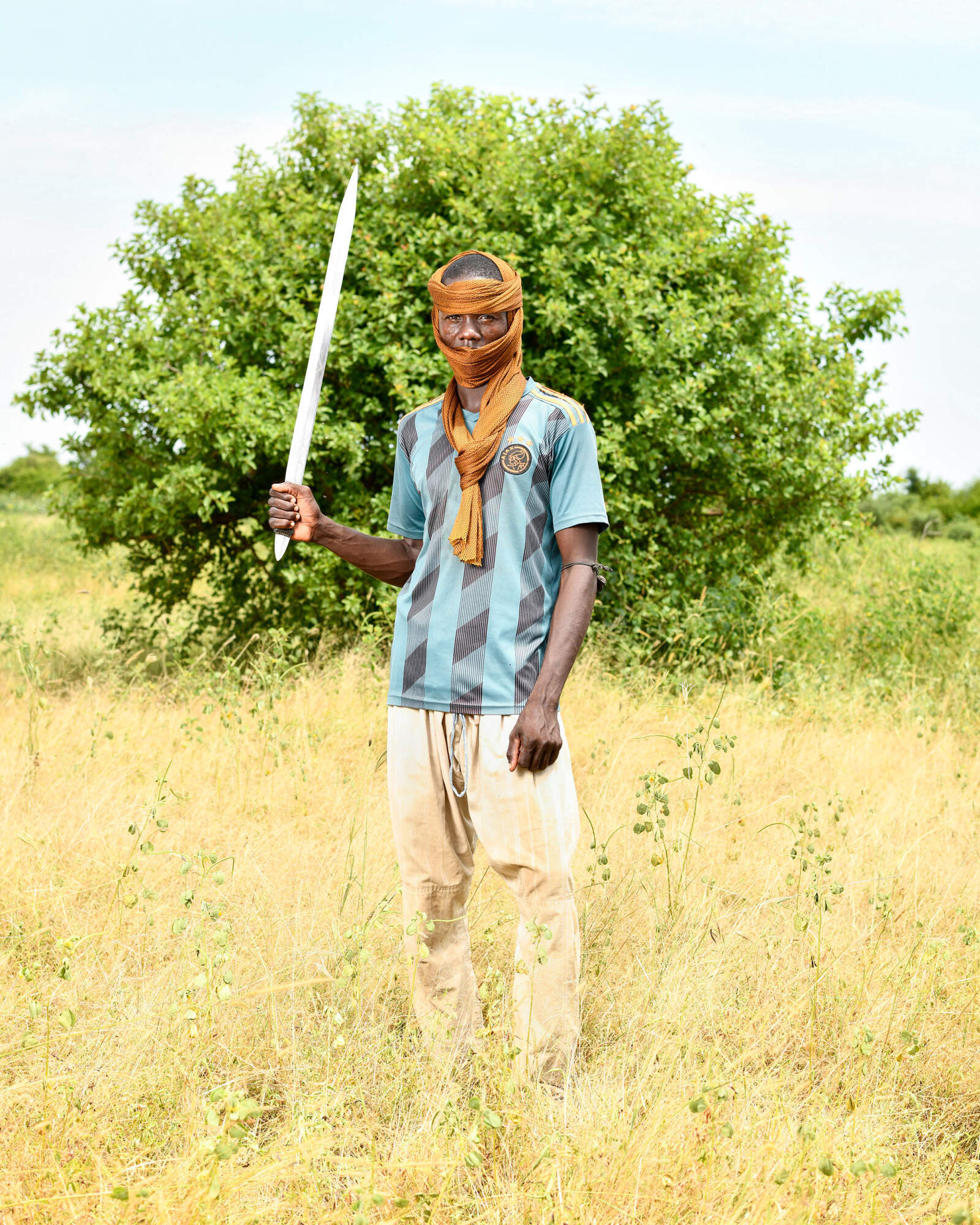
Bachacha, Dourbali, Chad. 28 year old nomadic Fulani Seid Adoum. His group have only been in Bachacha for one day and will stay two more before they continue their journey towards better grazing lands. They say that one of the reasons they have to keep moving is that farms have been established in areas where they used to graze so good sources of food, that don't put them in conflict with farmers, are hard to find. Many of the herders carry weapons to protect themselves and their animals from cattle rustlers.
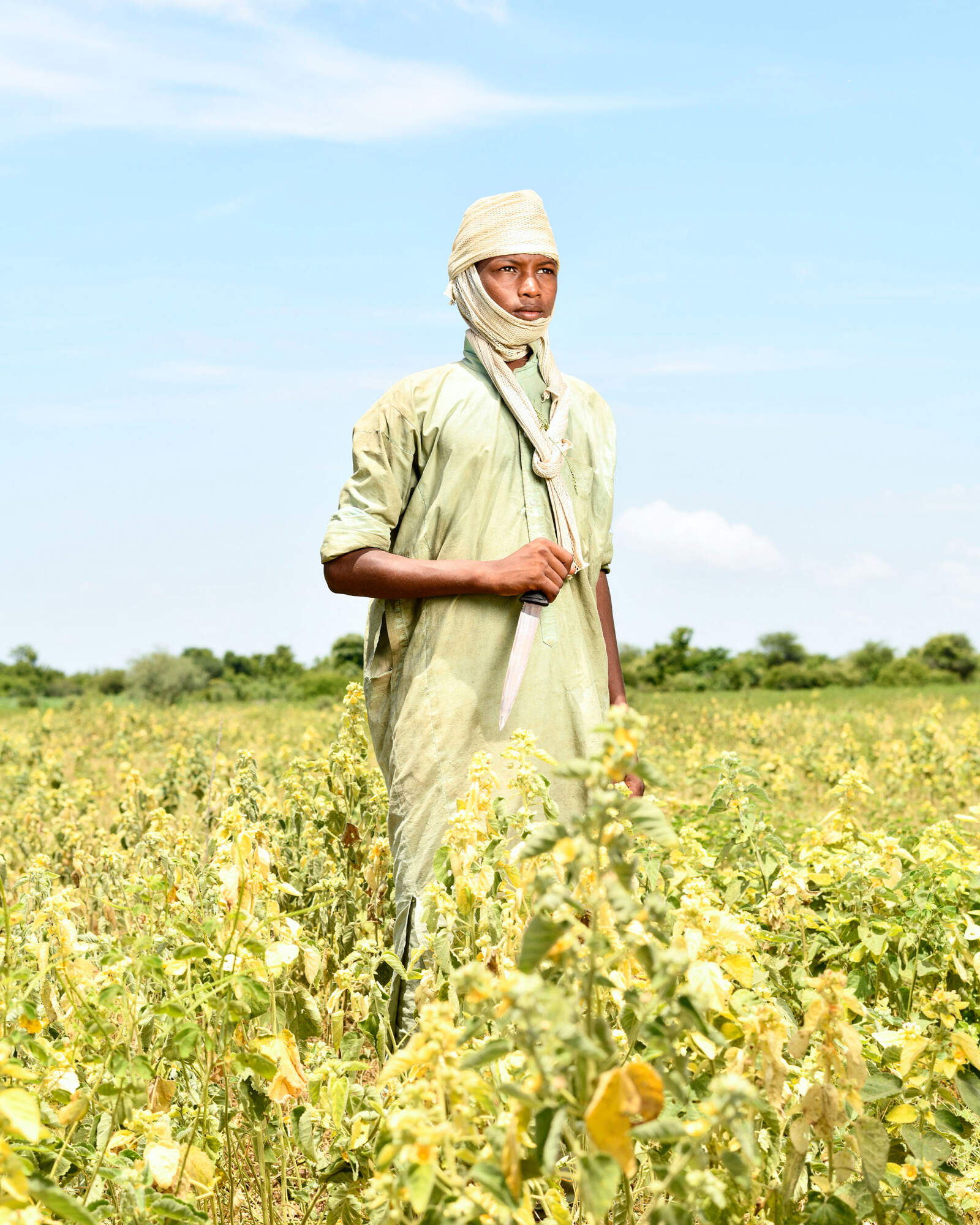
Bachacha, Dourbali, Chad. 19 year old nomadic Fulani Houffa Adoum. His group have only been in Bachacha for one day and will stay two more before they continue their journey towards better grazing lands. They say that one of the reasons they have to keep moving is that farms have been established in areas where they used to graze so good sources of food, that don't put them in conflict with farmers, are hard to find. Many of the herders carry weapons to protect themselves and their animals from cattle rustlers.
Cameroon. Interior of a Fulani herder's shelter made from branches and canvas with their beds, pillows and bowls. Their homes are designed to be easily dismantled, transported and reassembled.
Cameroon. Interior of a Fulani herder's home.
Cameroon. Interior of a Fulani herder's home.
Cameroon. Interior of a Fulani herder's home.
There has always been tension in West and Central Africa between farmers and nomadic herders but climate change has reduced the availability of useable land and significantly increased conflict between the two groups resulting in horrific violence. Many thousands of Fulani have been killed - by machete, spear and guns - while several hundred thousand have been displaced across the region and forced into camps.
Mopti, Mali. A woman and children in a tent at Sokura IDP camp. Intended as a football field, Sokura Camp became home to internally displaced people in Mali. According to the Malian Department of Development this is the only official camp for those displaced in the conflict that has affected the region. It houses 151 families, or 712 individuals. There are approximately 15,000 registered IDPs in Mopti city and 61,000 IDPs in Mopti region. While Sokura is the only official camp, 27 other smaller informal camps have been identified in the Mopti region. The majority of those in Sokura house Fulani families of semi-nomadic or nomadic herders.
Bamaka, Mali. Faladie Camp which has been in existence since August 2018 when the first displaced people started arriving there after fleeing conflict in the centre of the country. It was constructed around an animal market run by a Fulani man. It is also on the edge of a large rubbish dump where toxic fumes from burning waste is a constant health risk to those living in the camp. With over 1,000 Fulani inhabitants, mostly semi-nomadic or nomadic herders, it is reported to be the biggest single camp of internally displaced Fulani in the country.
Chenget, Bokoss, Plateau State, Nigeria. A dog stands among the burned remains of houses belonging to both Fulani pastoralists and settled farmersthat were destroyed on 27 January 2020 in retaliation for the killing of 23 farmers the day earlier.
Bamako, Mali. Women and children in Faladie Camp which has been in existence since August 2018 when the first displaced people started arriving there after fleeing conflict in the centre of the country. It was constructed around an animal market run by a Fulani man. It is also on the edge of a large rubbish dump where toxic fumes from burning waste is a constant health risk to those living in the camp. With over 1,000 Fulani inhabitants, mostly semi-nomadic or nomadic herders, it is reported to be the biggest single camp of internally displaced Fulani in the country.
The government of Nigeria admitted that they have failed in terms of security. We couldn’t just sit back and fold our arms and wait for them to bring security they don’t have.”
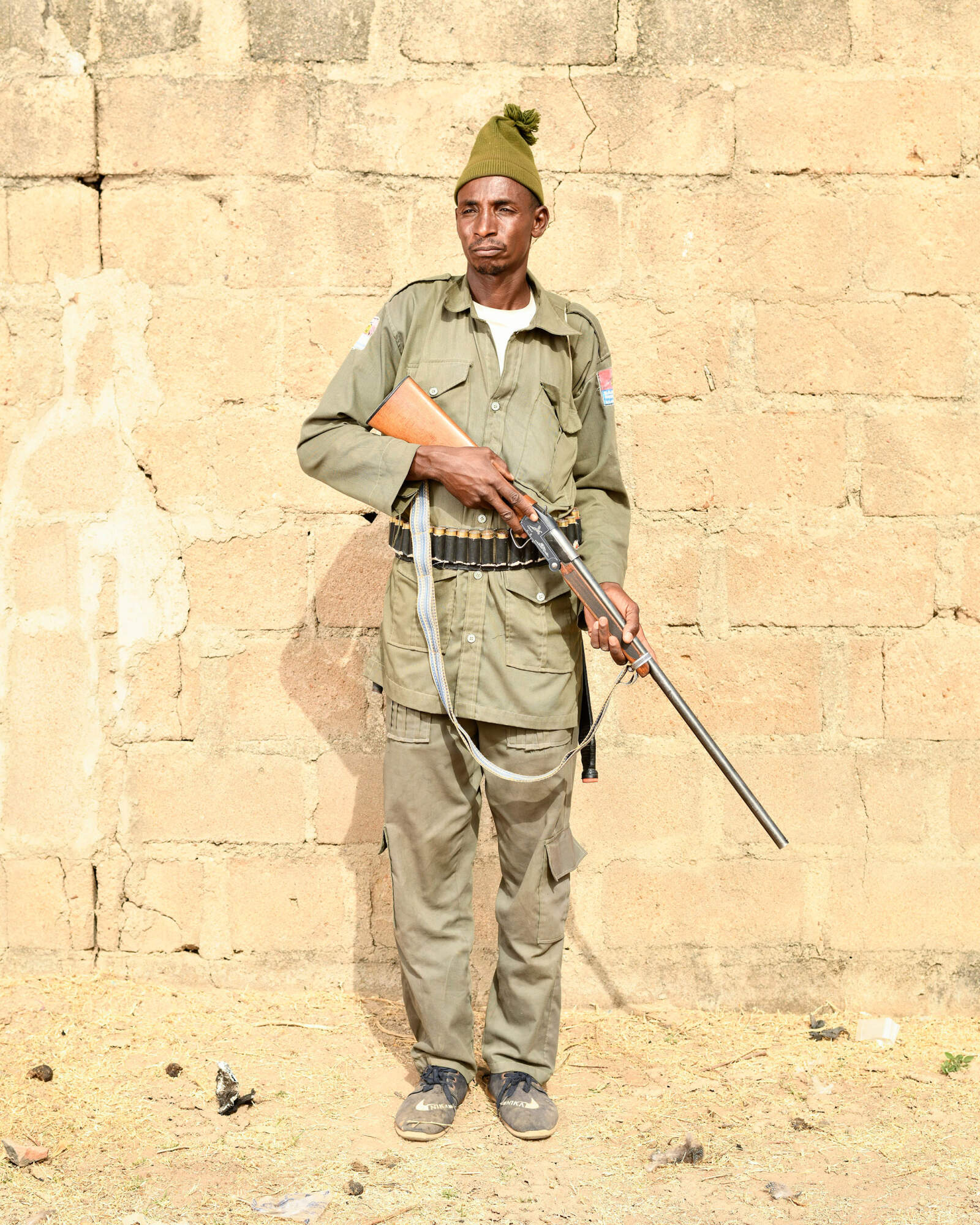
Girei Cattle Market, Adamawa, Nigeria. 35 year-old Abubakar Dengi is a Fulani member of the Myetti Allah Cattle Breeders Association of Nigeria (MACBAN) Adamawa Chapter Vigilantes.
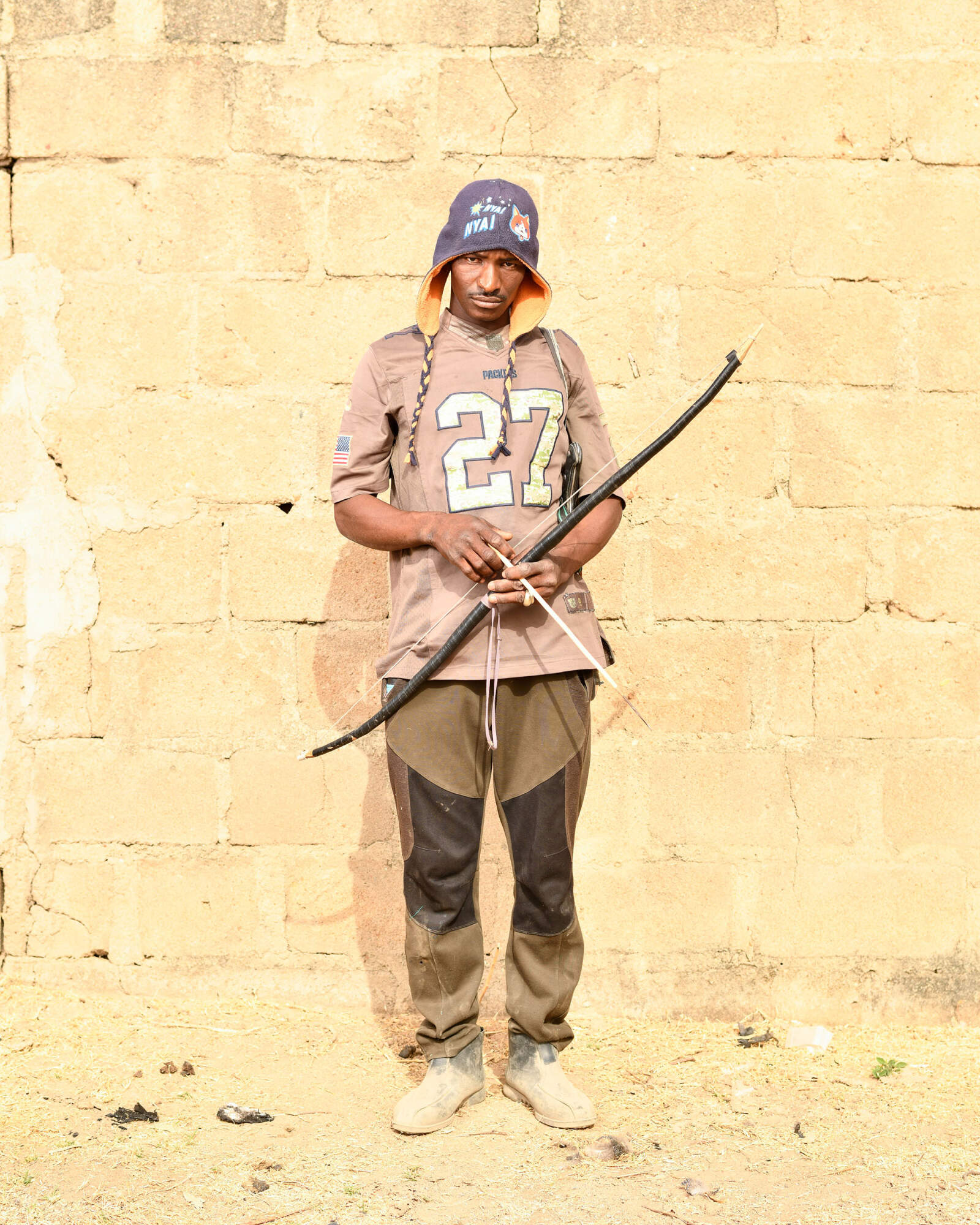
Girei Cattle Market, Adamawa, Nigeria. 26 year-old Muhammadu Bello is a Fulani member of the Myetti Allah Cattle Breeders Association of Nigeria (MACBAN) Adamawa Chapter Vigilantes.
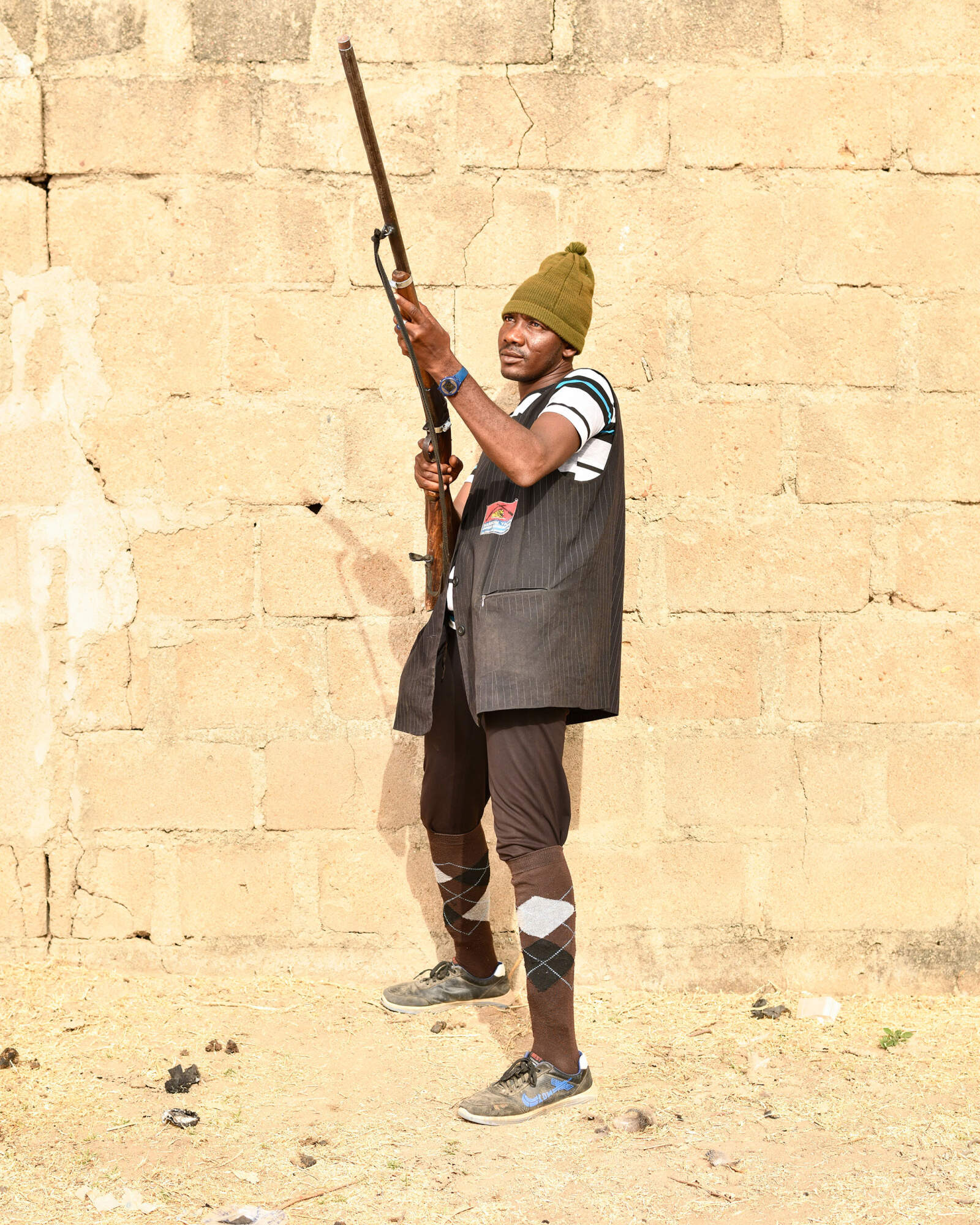
Girei Cattle Market, Adamawa, Nigeria. 30 year-old Haji Kalaldi is a Fulani member of the Myetti Allah Cattle Breeders Association of Nigeria (MACBAN) Adamawa Chapter Vigilantes.
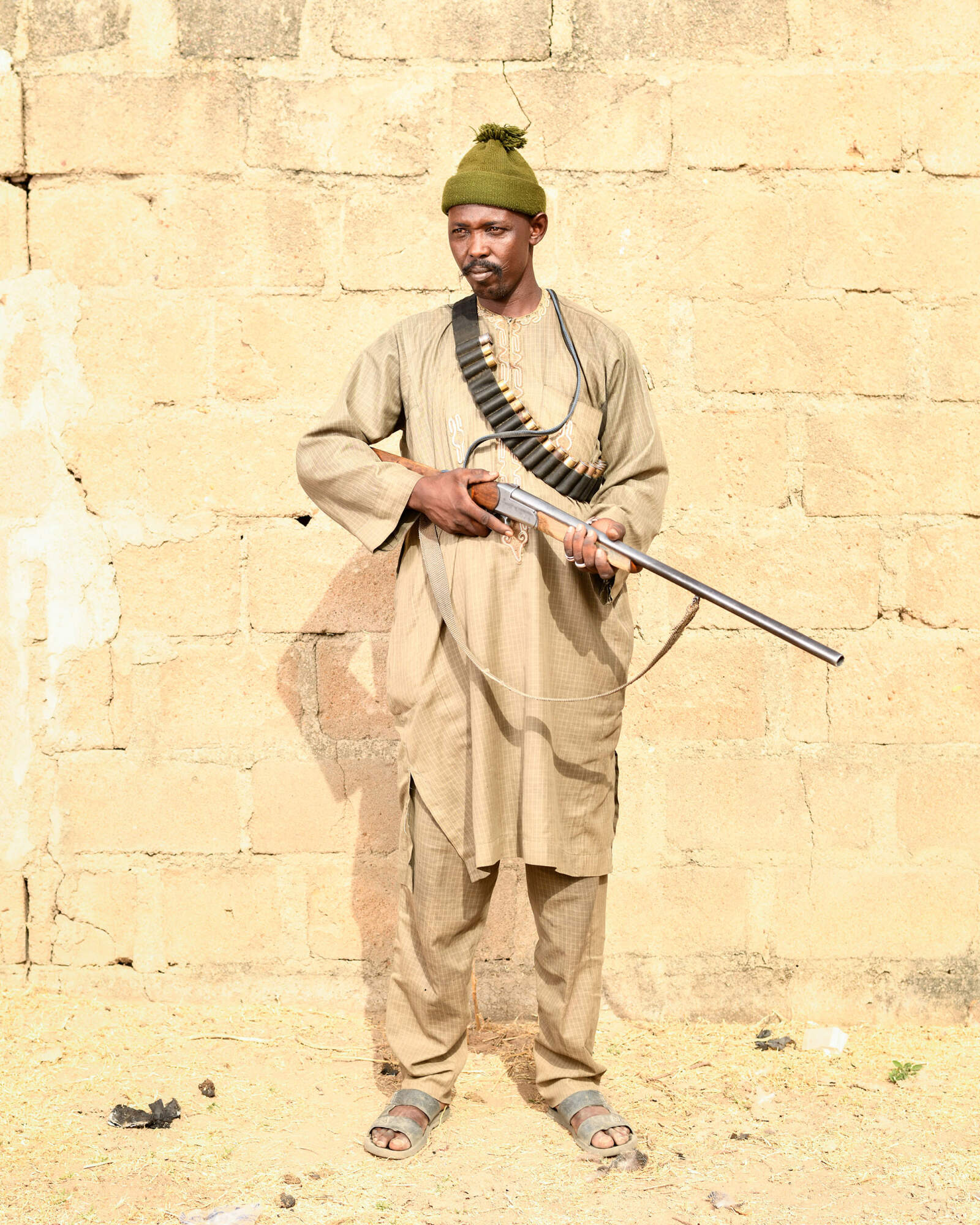
Girei Cattle Market, Adamawa, Nigeria. 36 year-old Abdullahi Usman is a Fulani member of the Myetti Allah Cattle Breeders Association of Nigeria (MACBAN) Adamawa Chapter Vigilantes.
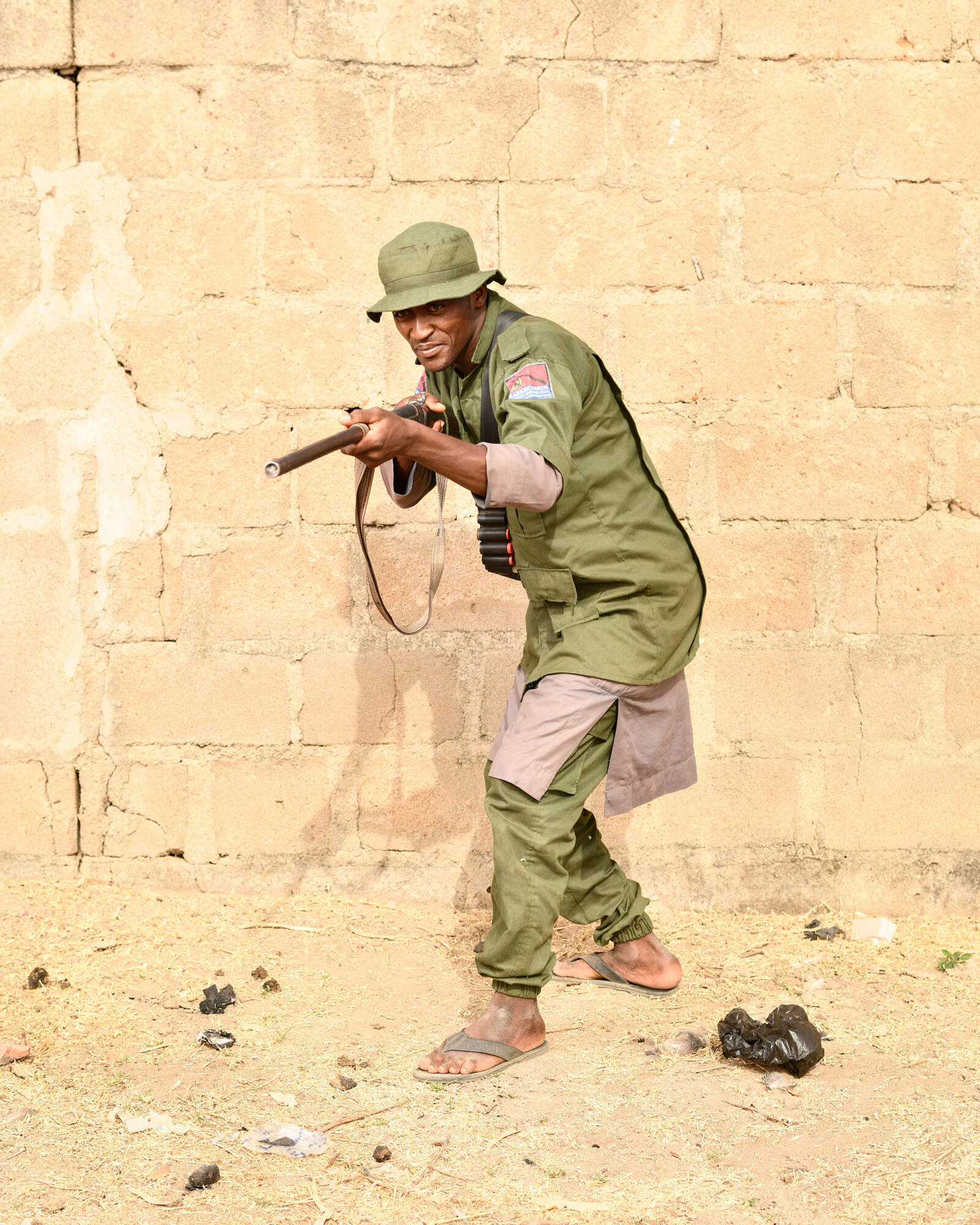
Girei Cattle Market, Adamawa, Nigeria. 32 year-old Abubakar Atiku is a Fulani member of the Myetti Allah Cattle Breeders Association of Nigeria (MACBAN) Adamawa Chapter Vigilantes.
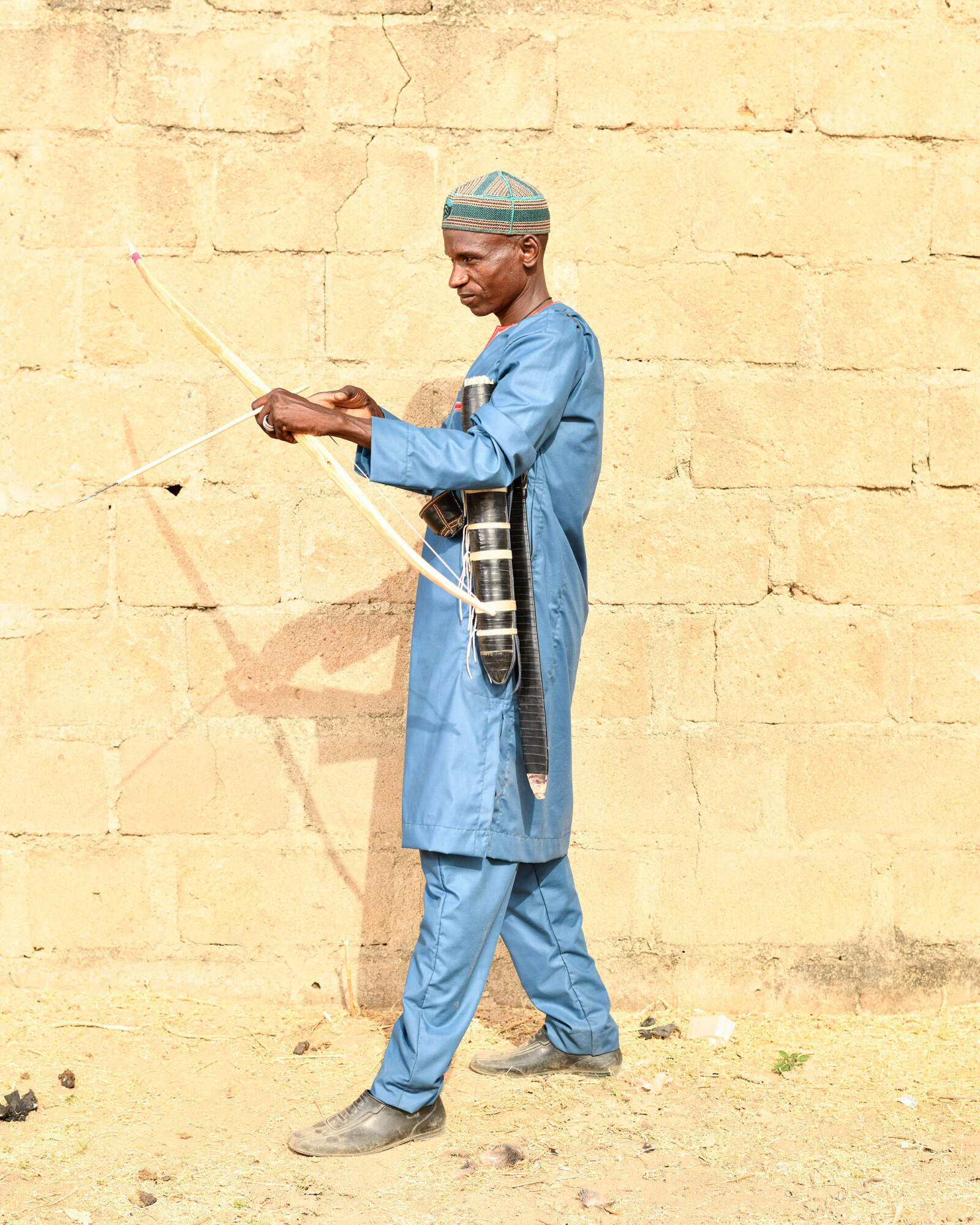
Girei Cattle Market, Adamawa, Nigeria. 37 year-old Mamman Hammadu is a Fulani member of the Myetti Allah Cattle Breeders Association of Nigeria (MACBAN) Adamawa Chapter Vigilantes.
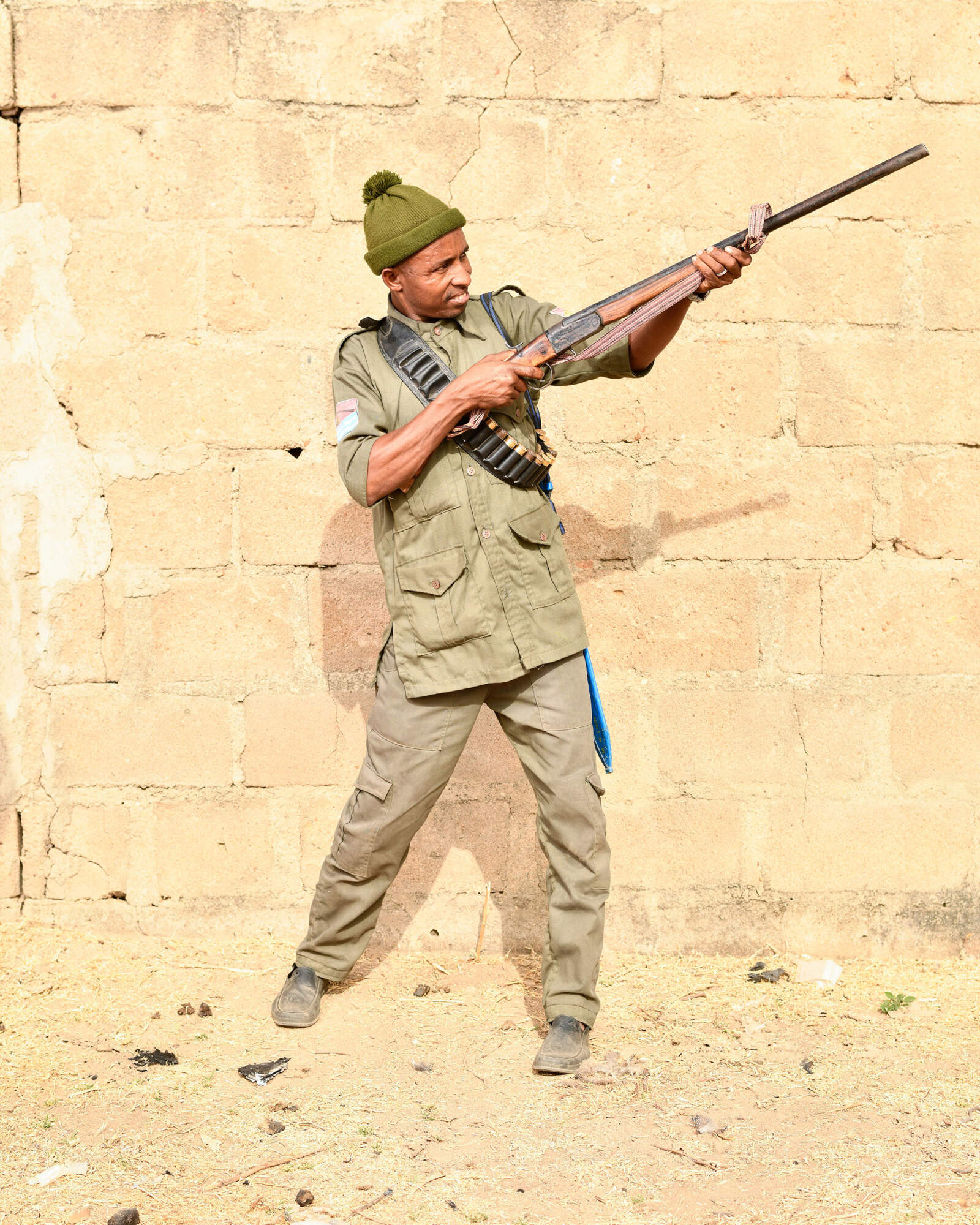
Girei Cattle Market, Adamawa, Nigeria. 30 year-old Bello Abubakar is a Fulani member of the Myetti Allah Cattle Breeders Association of Nigeria (MACBAN) Adamawa Chapter Vigilantes.
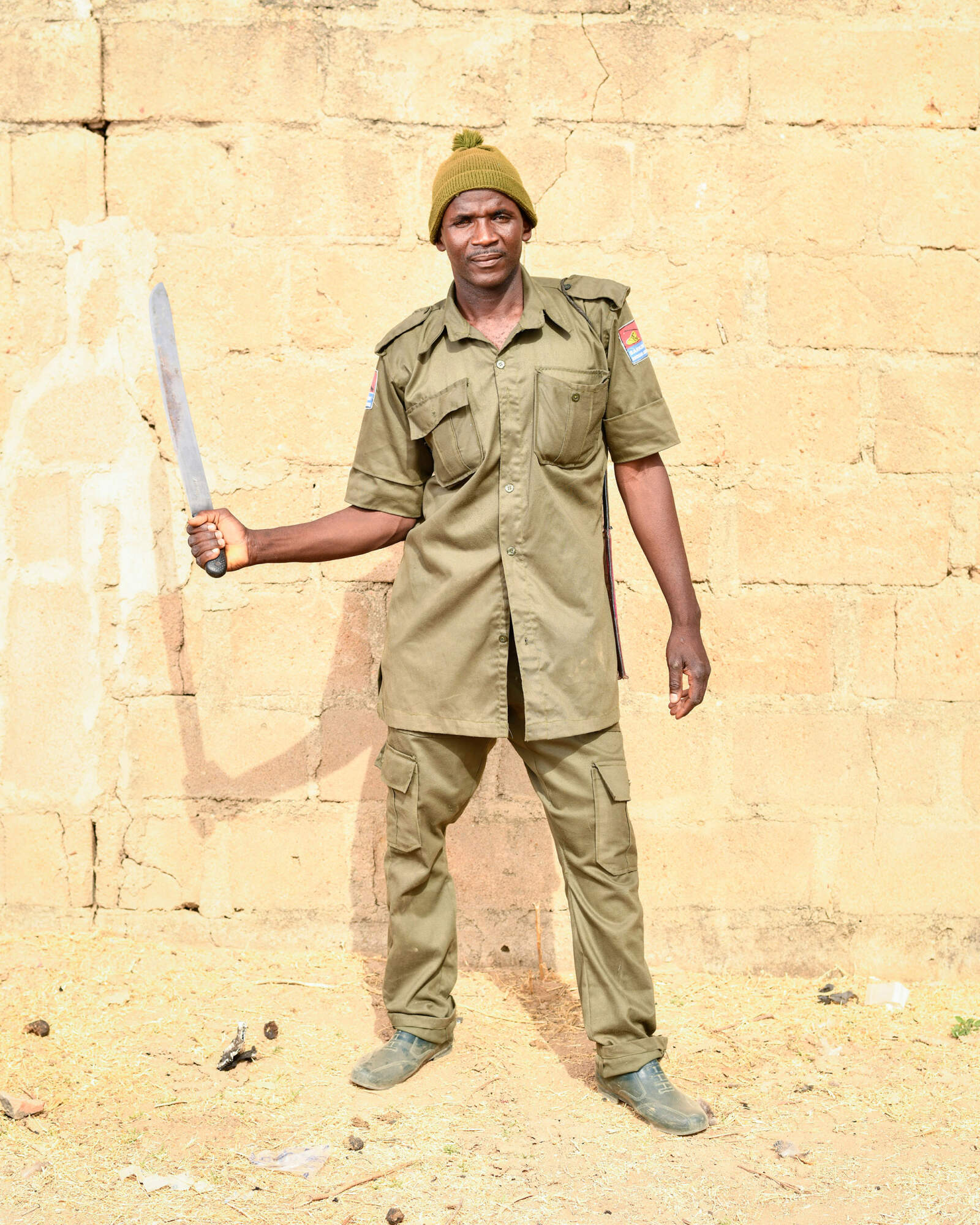
Girei Cattle Market, Adamawa, Nigeria. 30 year-old Adamu Ibrahim is a Fulani member of the Myetti Allah Cattle Breeders Association of Nigeria (MACBAN) Adamawa Chapter Vigilantes.
Dowleggal, Mayo-Belwa, Adamawa, Nigeria. 20 year old Fulani Hureira Ahmadu was struck in the hands with a machete as she ran from attackers. When they caught her they struck her in the head knocking her out. The attack of 20 November 2017 on the Fulani community of Shelewol was reportedly committed by Bachama youth, a farming and fishing people. It left over 100 Fulani dead. They were displaced in the violence.
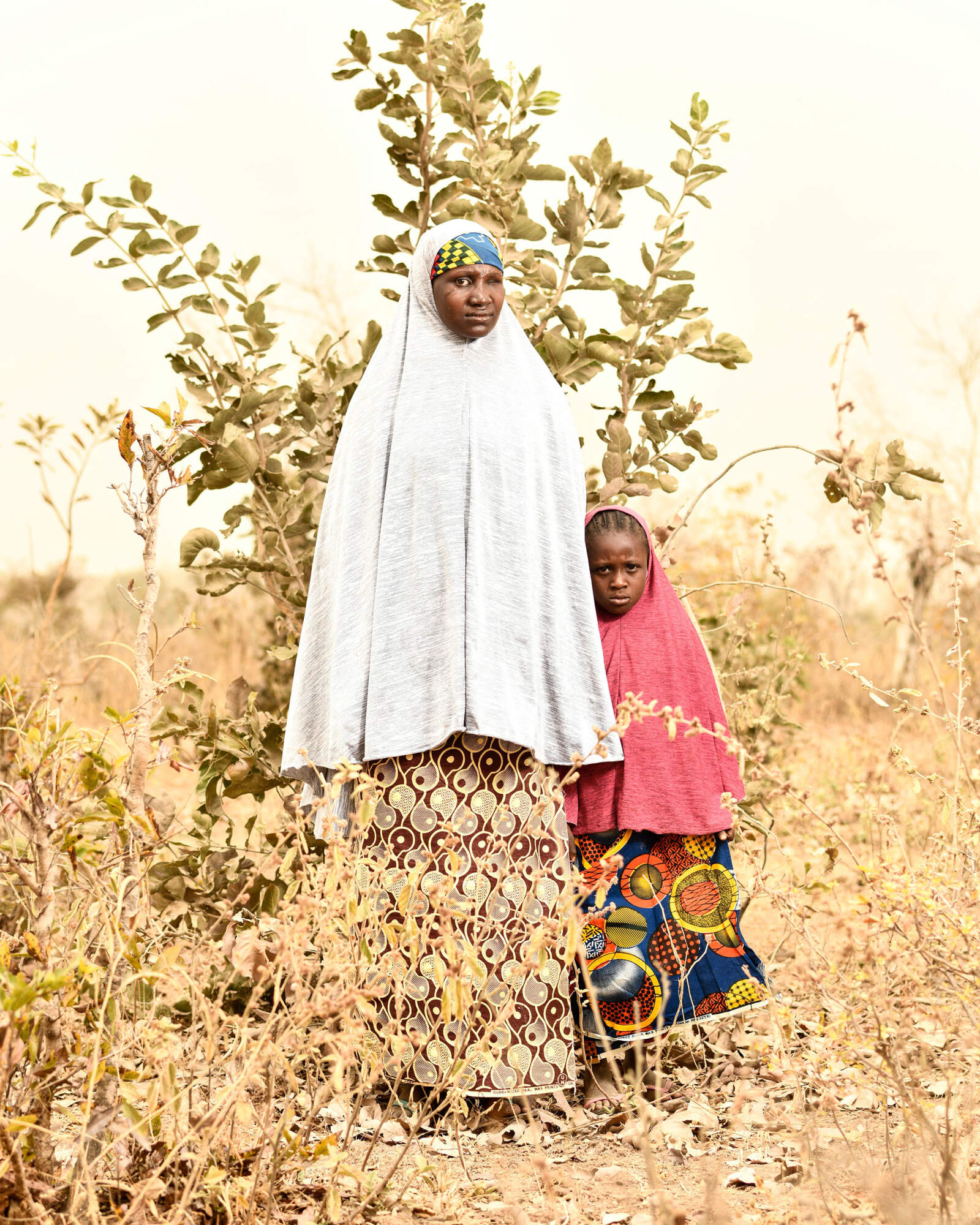
Mayo-Inne, Adamawa, Nigeria. 30 year old Fatuma Saidu with her daughter Daso Saidu. Fatuma lost three of her four children and her eye in an attack on her community. She tells her story: "We were on the river bank. I was running with my children. I was carrying one child on my back, one was in front of me. My brother-in-law was carrying one of my sons on his shoulders. Someone threw a spear which struck and killed the child on his back. My five-month old fell from my back. I watched as they arrived at the child. Holding their spears in two hands they stabbed into the baby over and over again. The oldest child jumped in the river to escape. He drowned. They struck me with their machete across my back and across my face. I fell to the ground. And the fourth child, it's just God that saved her for me, to console me." On 20 November 2017 the Fulani community of Shelewol was reportedly invaded by Bachama youth, a farming and fishing people. The attack left over 100 Fulani dead. Fatuma and the other survivors were displaced in the violence.
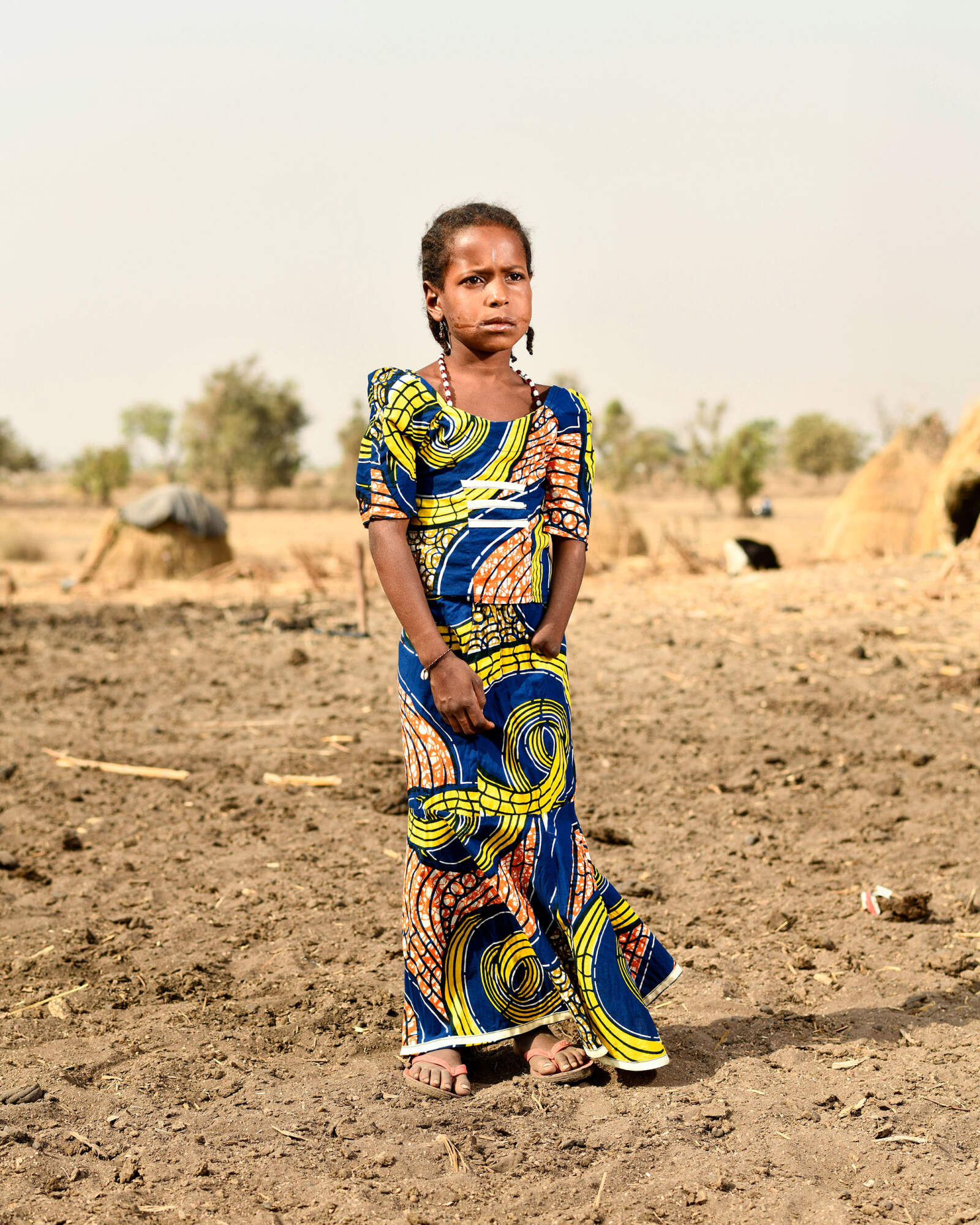
Dowleggal, Mayo-Belwa, Adamawa, Nigeria. Six year old Fulani girl Hapsi Ahmadu had her mouth cut open and her left hand cut off in an attack of 20 November 2017 on the Fulani community of Shelewol, reportedly committed by Bachama youth, a farming and fishing people. It left over 100 Fulani dead. They were displaced in the violence.
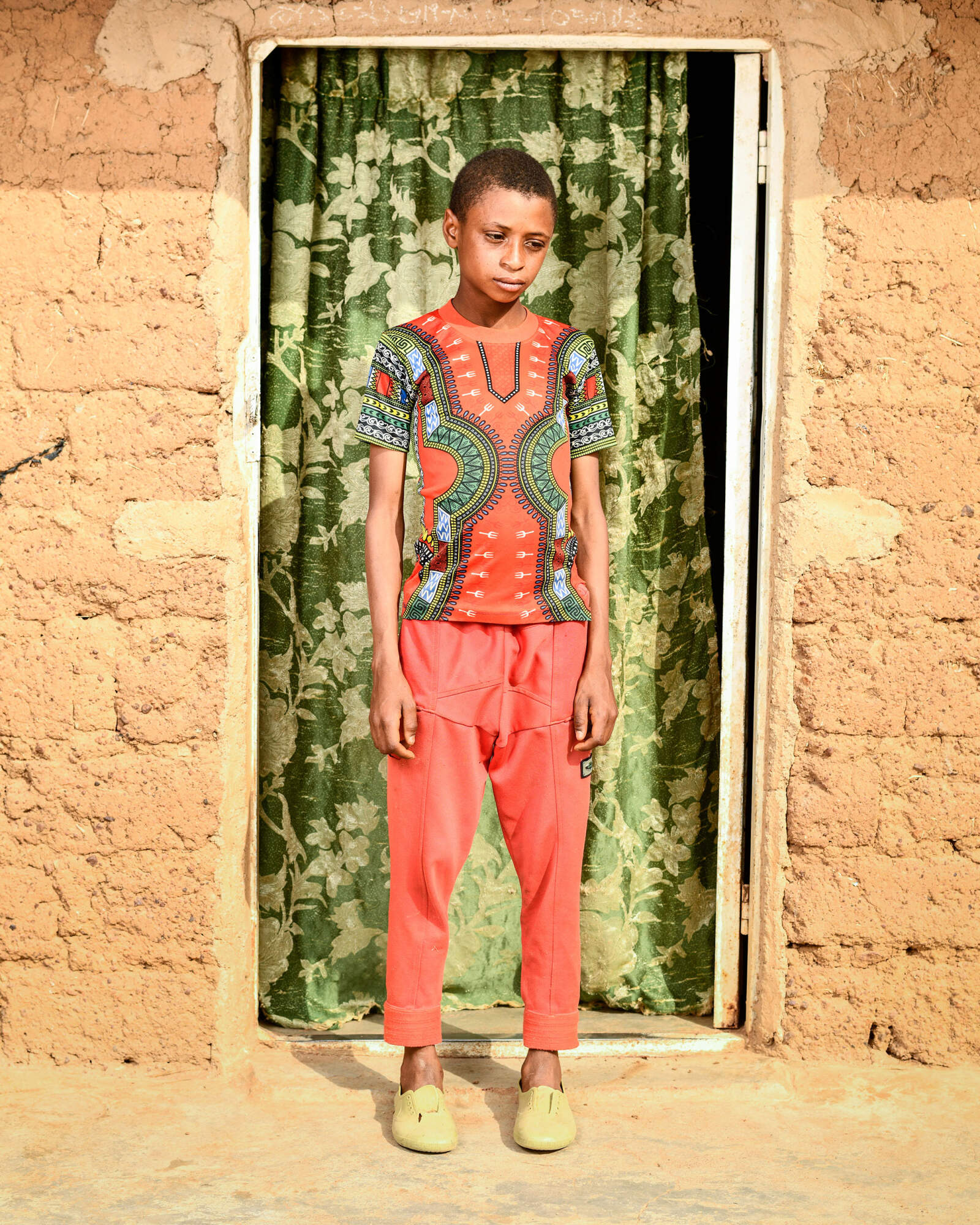
Katummai, Bassa, Plateau State, Nigeria. Yusuf Saidu, 15, brother of deceased 12 year-old Fulani boy Yahuza Saidu who was shot dead on 13 February 2020 while out grazing. 13 cows were also shot and killed during the attack. His family says a neighboring farming community are responsible for the murder.
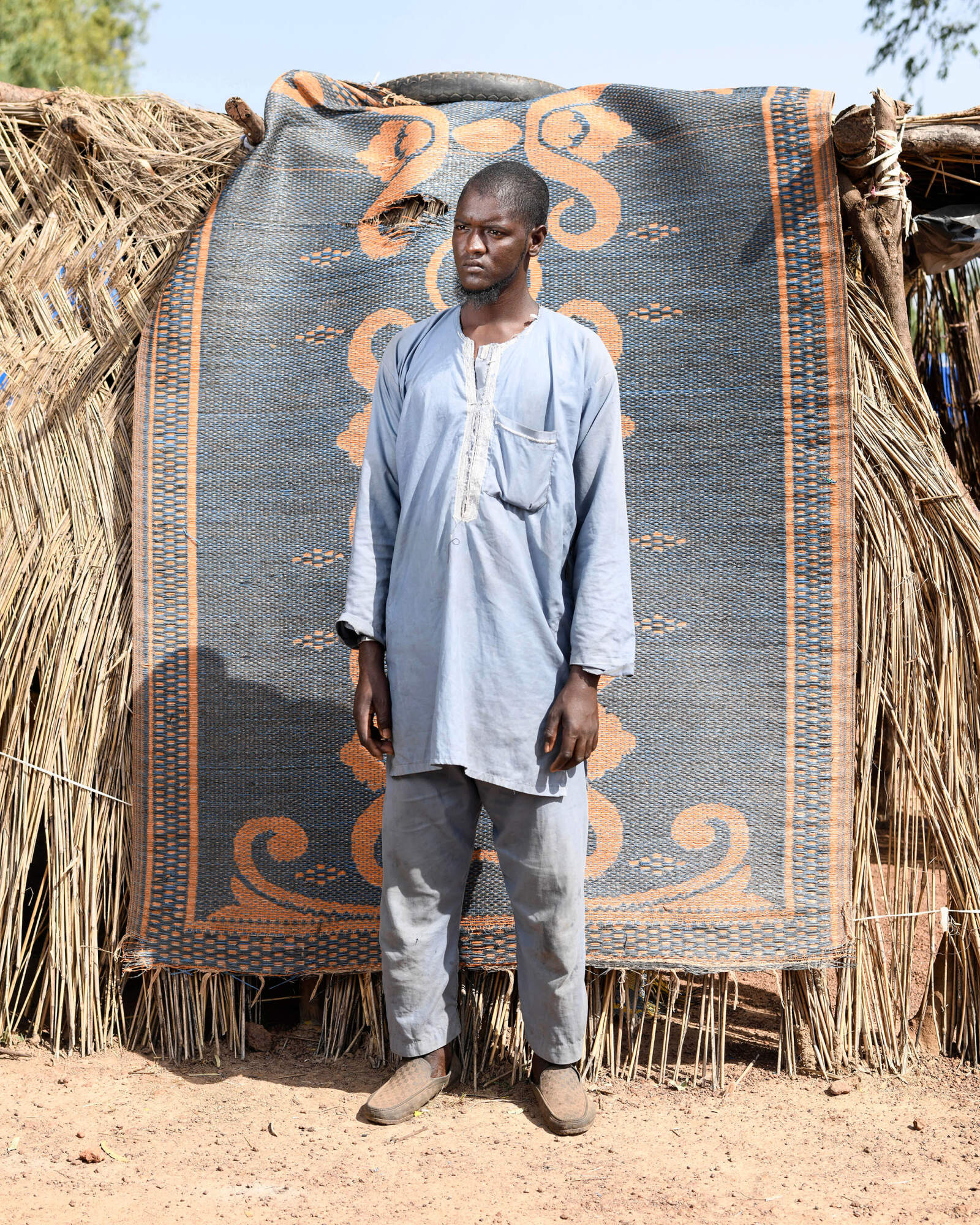
Bamako, Mali. Hamadoun Barry, 30, is an internally displaced nomadic herder from Anakaga Village in Koro, Mopti. He was in the village of Ogossagou in March 2019 when over 130 Fulani were killed by armed men wearing traditional Dogon hunters' clothing. "I saw them shooting and I hid. I don't know how I survived. God saved me", he says. "After the attack I came back and buried the bodies. After that I ran away." He now stays in Senou Camp in Bamako, which has been in existence since 25 March 2019, when the first displaced started arriving there after fleeing conflict in the center of the country. Hamadoun takes care of the cattle belonging to the owner of the land on which the IDP camp has been built. He doesn't wish to be there though: "I wish I didn't have to stay here one more second, but without peace we can't go back." There are 120 tents and 824 Fulani inhabitants, mostly semi-nomadic or nomadic herders at the camp. It is one of the biggest camps of internally displaced Fulani in the country.
Kanamoudji, Dourbali, Chad. A nomadic Fulani family migrating with their animals.
It is often asserted by some governments and non-Fulani groups that the Fulani are disproportionately joining Jihadist groups. The reality is that herders heavily contribute to the region's economy and have a long history of peaceful trade with farmers and business owners.
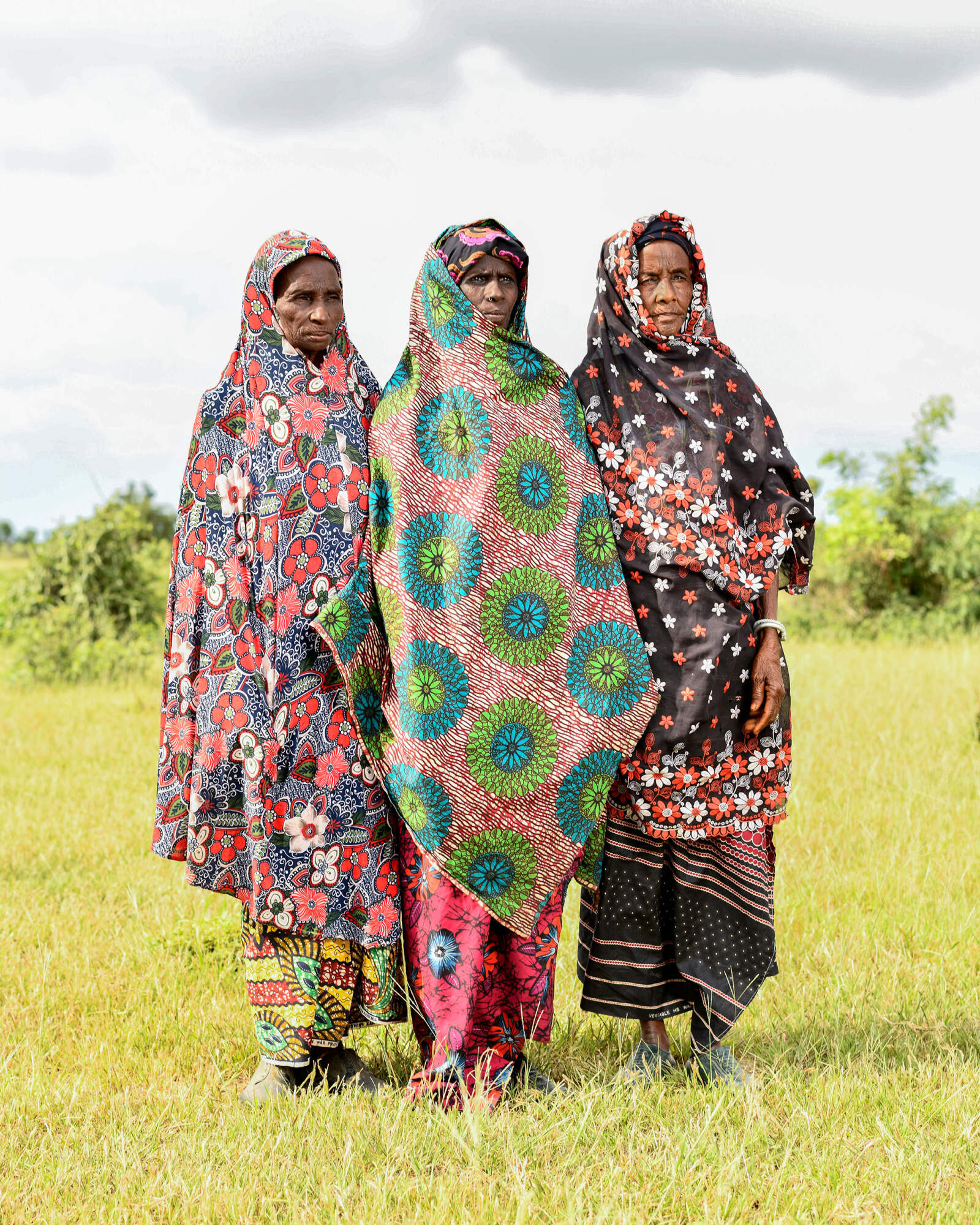
Kaele Division, Far North, Cameroon. Binto Abdou (black scarf), Fadima Karrou (red, green, blue scarf), and Jenabou Oumarou (red scarf) are female leaders of the semi-nomadic Mbororo community in Foulou. Fadima Karrou explains that their role involves consulting on matters such as marriages and special events and giving advice to younger women as well as resolving conflicts, especially between wives.
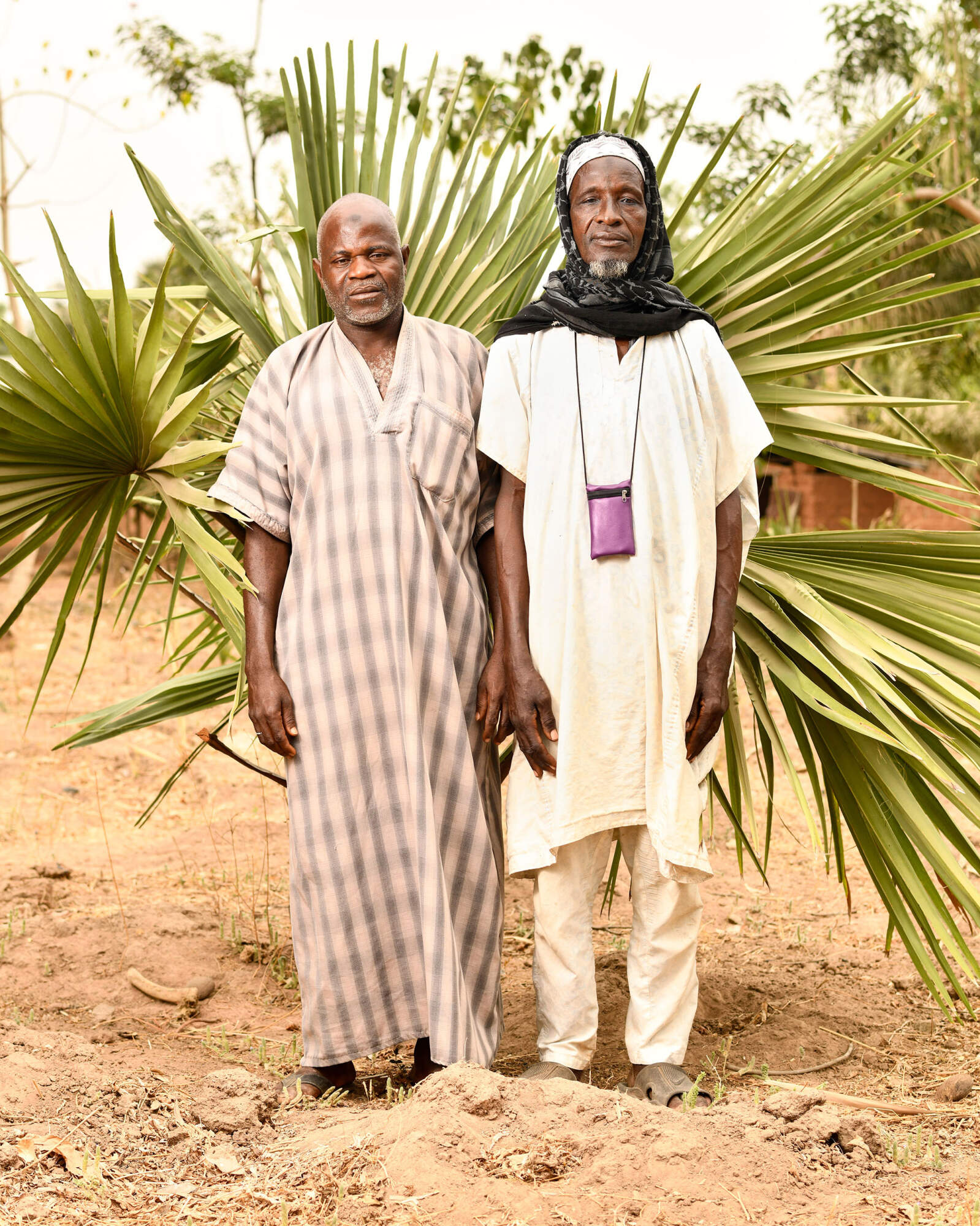
Ashige, Lafia, Nasarawa State, Nigeria. Abdul Azeez, a farmer and Peace Keeping Committee member (left), stands with fellow committee member and Fulani herder Yunusa Ali (right).
Adamawa, Nigeria. A man rides a motorcycle along a dusty path that runs through scrubland and trees.
Ashige, Lafia, Nasarawa State, Nigeria. A meeting of the Ashige Peace Keeping Committee, a group of farmers and pastoralists charged with resolving disputes and preventing violence between their communities.
Upper East Region, Ghana. A nomadic Fulani woman, who fled fighting in Burkina Faso, stands beside an open fire.

